32 Surprising Rules Olympic Athletes Have to Follow During the Games
From no French fries in the Village to an "intimacy ban," there are lots of regulations to know about.
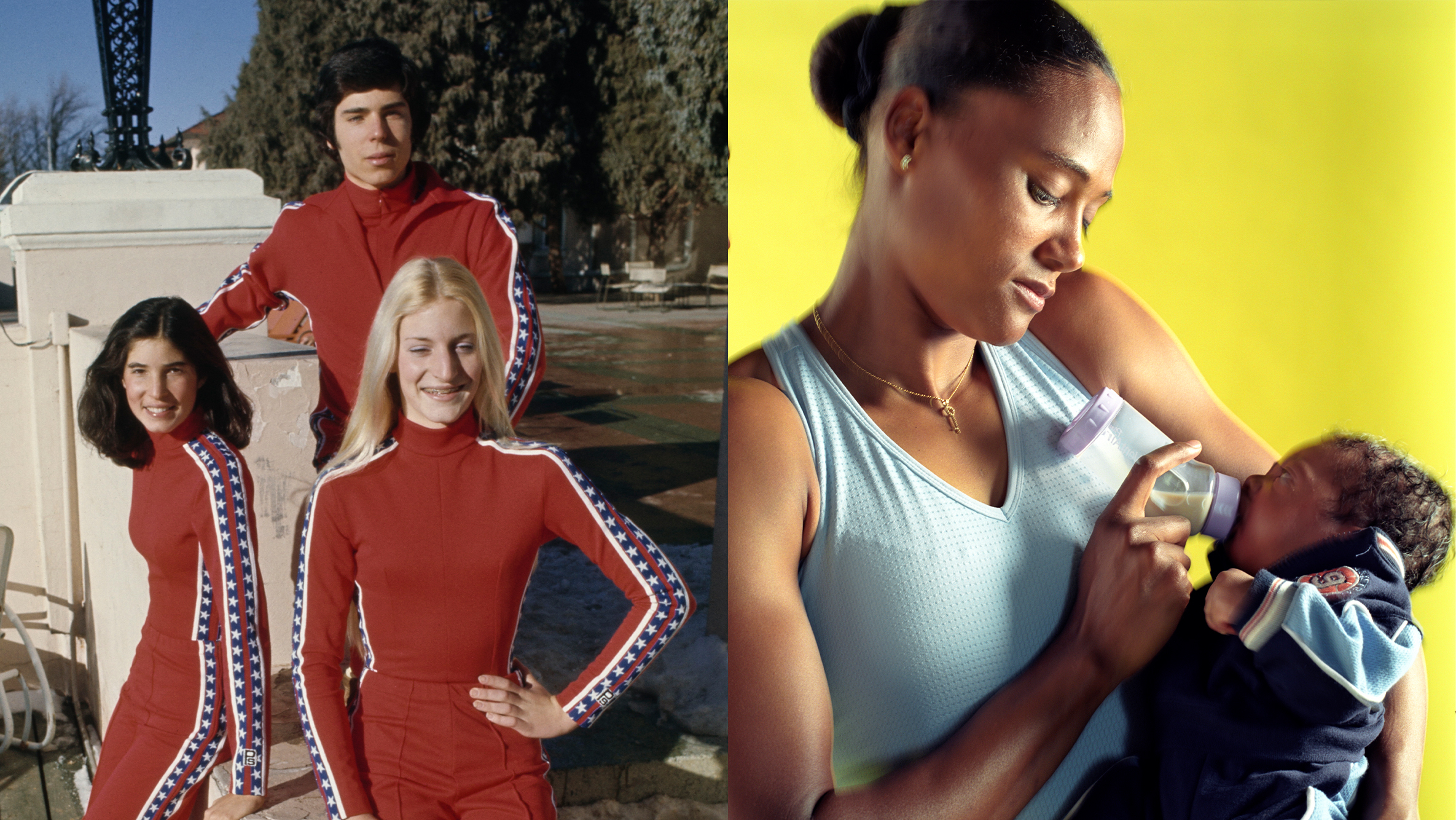

If you're one of the few athletes who's qualified for the Olympics, you've secured a spot in the Olympic Village, where the athletes, coaches, and support staff stay for the duration of the Games. Some athletes have likened it to living in a dorm, with sparse, minimal decorations and mandated roommates. On the flip side, they get top-tier food, exercise equipment, and tons of social activities (both with their own teammates and with athletes from other teams).
Ahead of the 2024 Paris Olympics, Team USA's Olympic Village Director Daniel Smith spoke with People about the event's rules in its modern iteration—both the ones mandated by Team USA and across the entire Village. It's a fascinating look behind the curtain of the world's biggest sports stage. Below, 32 surprising rules Olympic athletes have to follow.
A Specific Date for Entry

Athletes (and coaches and anyone else officially affiliated with the teams) can't arrive to the Olympic Village more than five days before the event. You don't have to show up that early, but it's the earliest you can enter the village and move into your residence.
Residential Zones
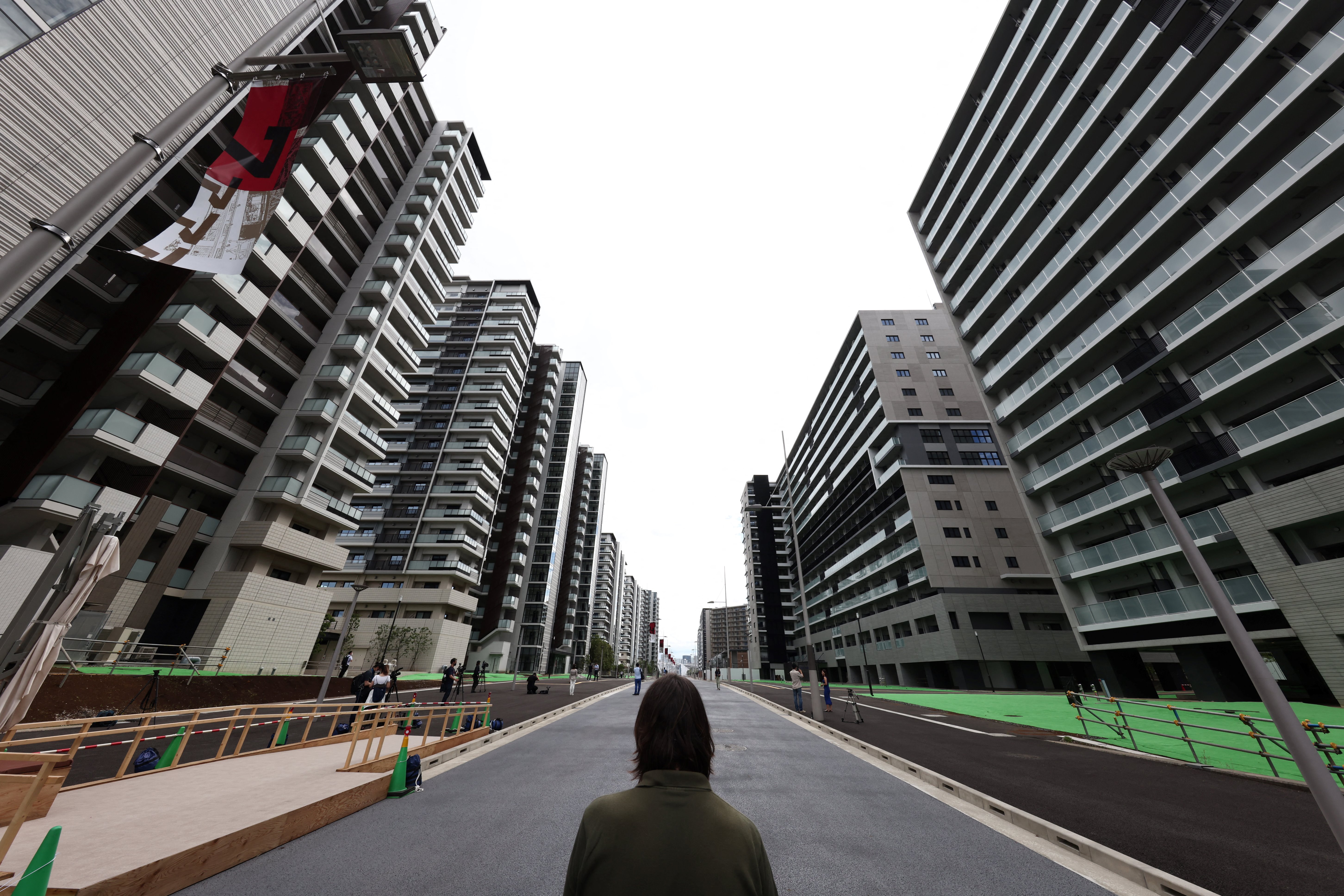
Athletes need to reside with their team, and there are designated residential zones. "These are built and they will be given to the community or sold in the community after the games, so they are apartment buildings that eventually will be individual towers," Smith explained. According to Le Monde, the buildings from Paris 2024 would be converted into a residential-commercial complex.
You Can Come and Go
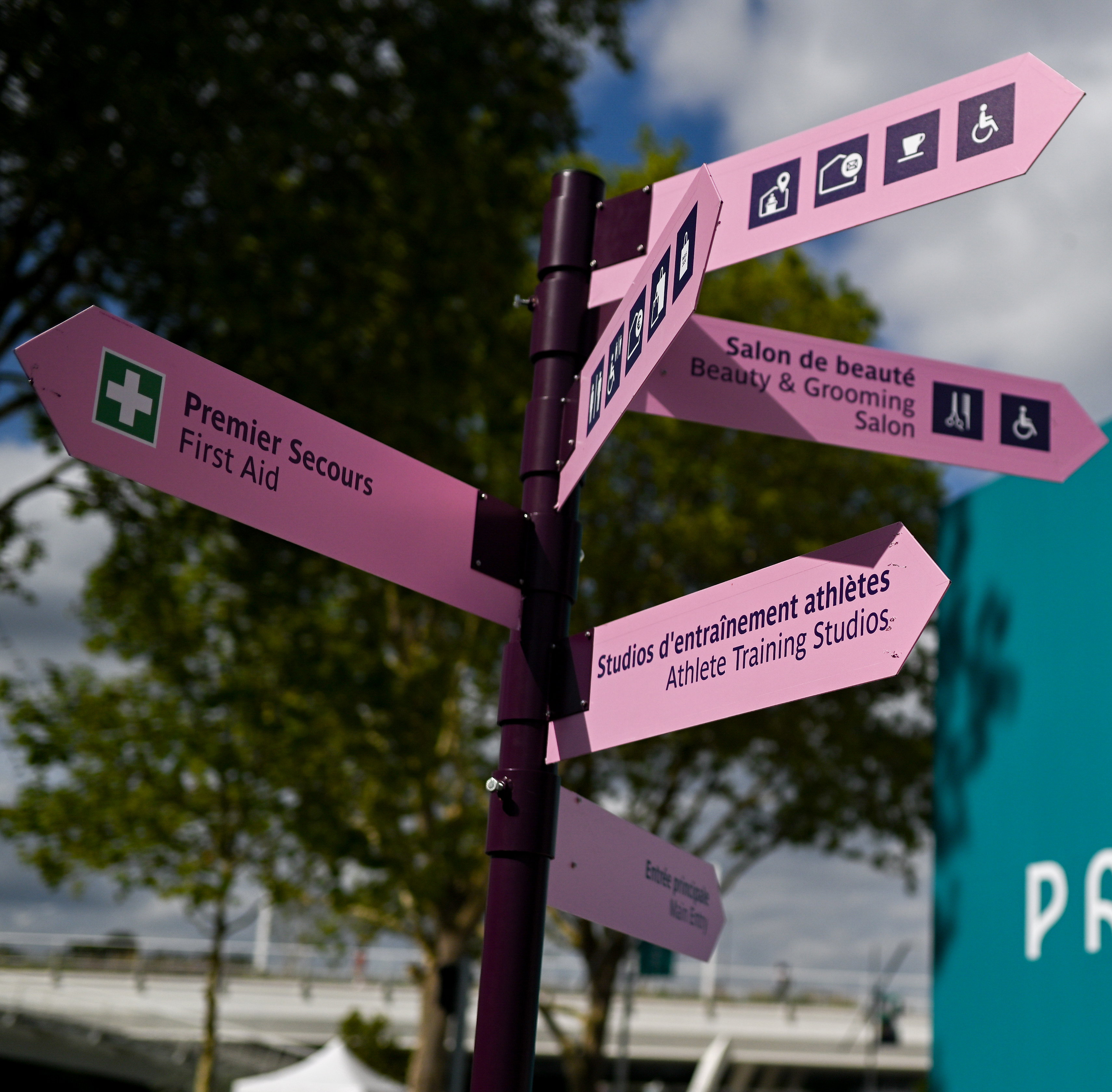
Once you've entered the Olympic Village, you can absolutely leave and go elsewhere within the compound (more on this in a moment, but there are a ton of resources at athletes' disposal). You can also leave the Village—but there are protocols for entry and re-entry.
Security Is a Must
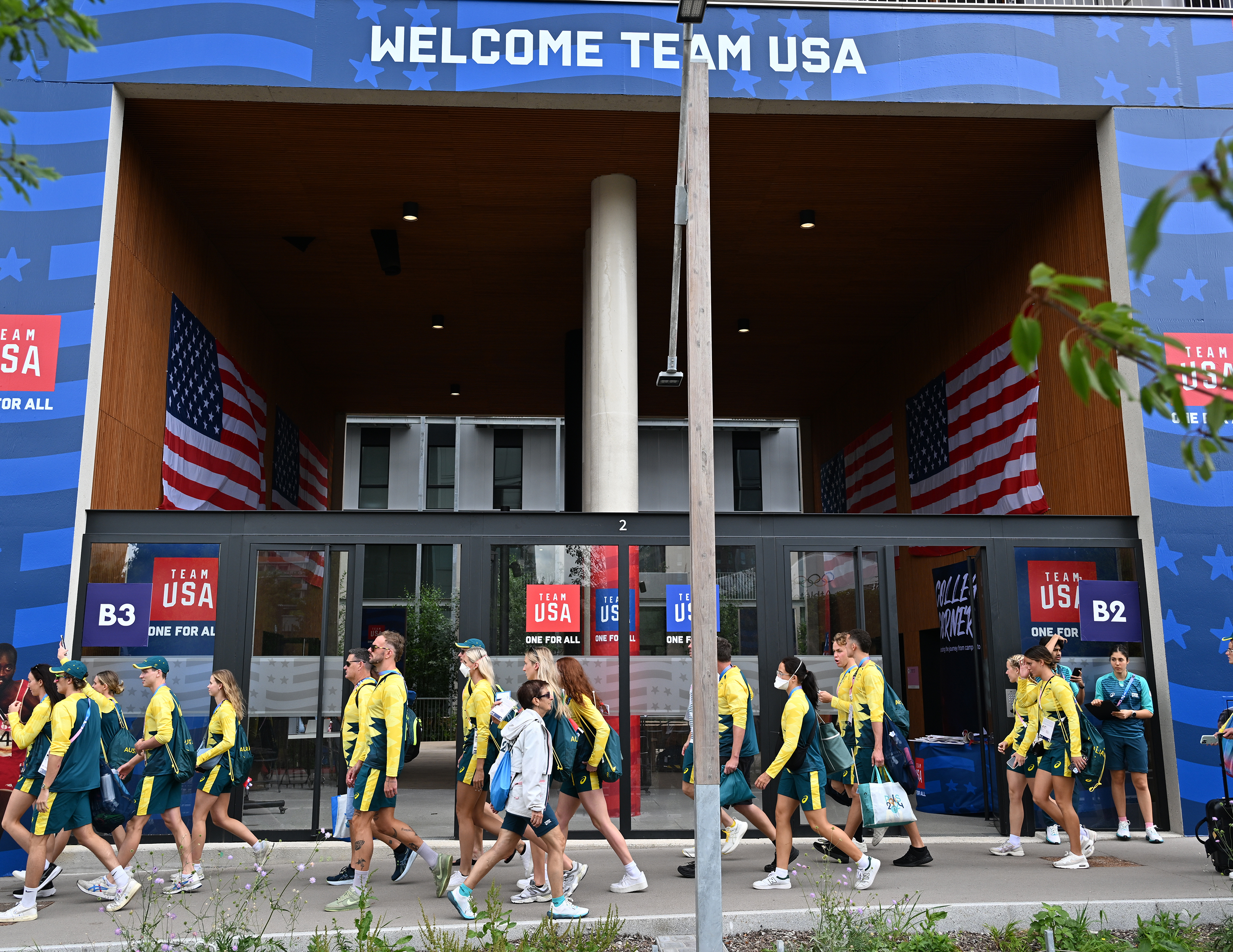
Should an athlete leave and re-enter the Olympic Village, Smith said, "All your bags go through scanners...There are metal detectors, there's physical security, there's undercover security, there's everything...So it's a very secure space in the city."
Use the Gym
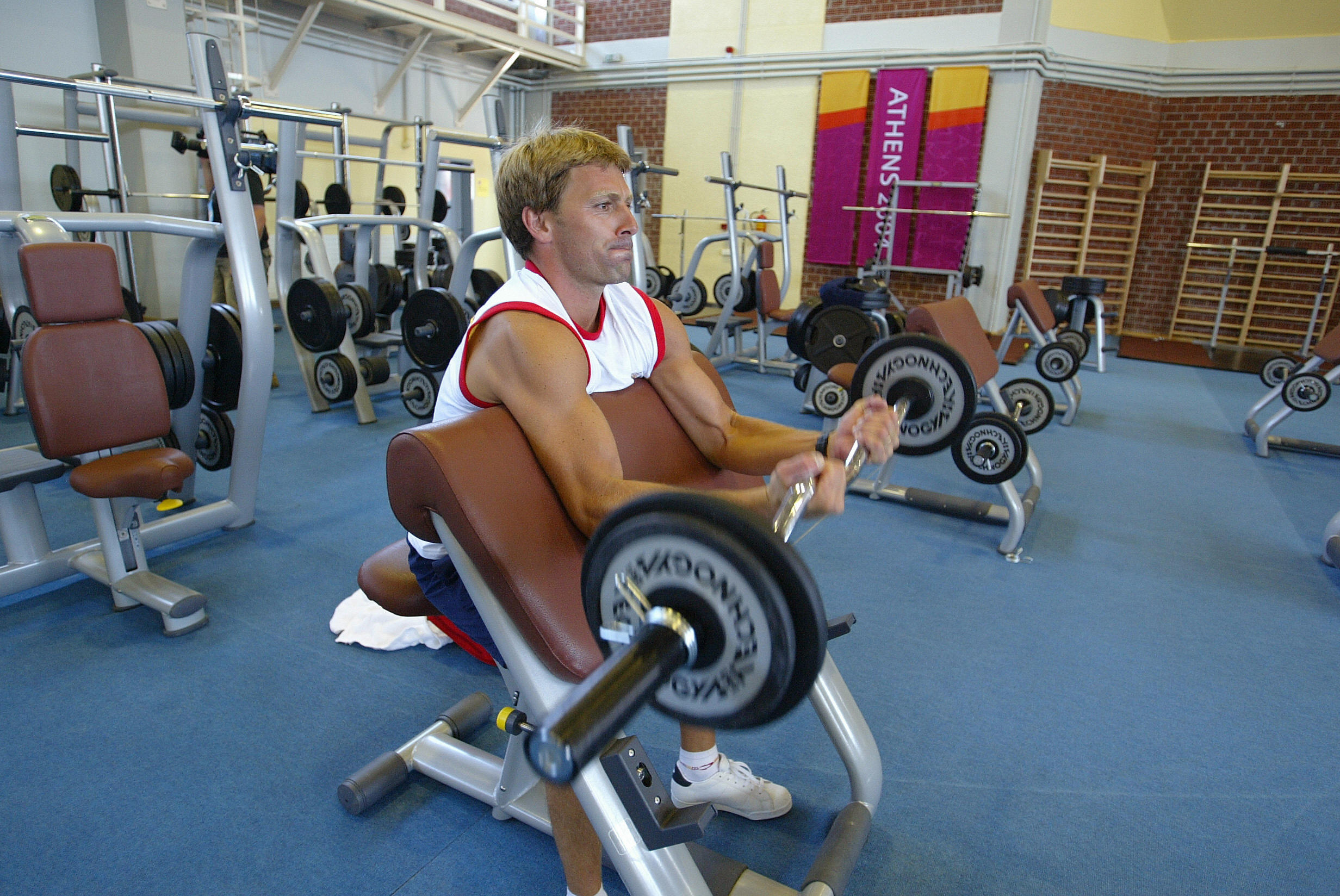
The Olympic Village has a gym that's open 24 hours a day. Team USA also has resources. "For the first time, we have a Team USA-only strength and conditioning space here in the Village," Smith said. "When some of the teams finish competition, it's very late at night and so getting up really early in the morning to go to our high performance center may not be so realistic...We've put together a great setup for athletes who need a quick lift early in the morning."
Get exclusive access to fashion and beauty trends, hot-off-the-press celebrity news, and more.
Change That Mattress
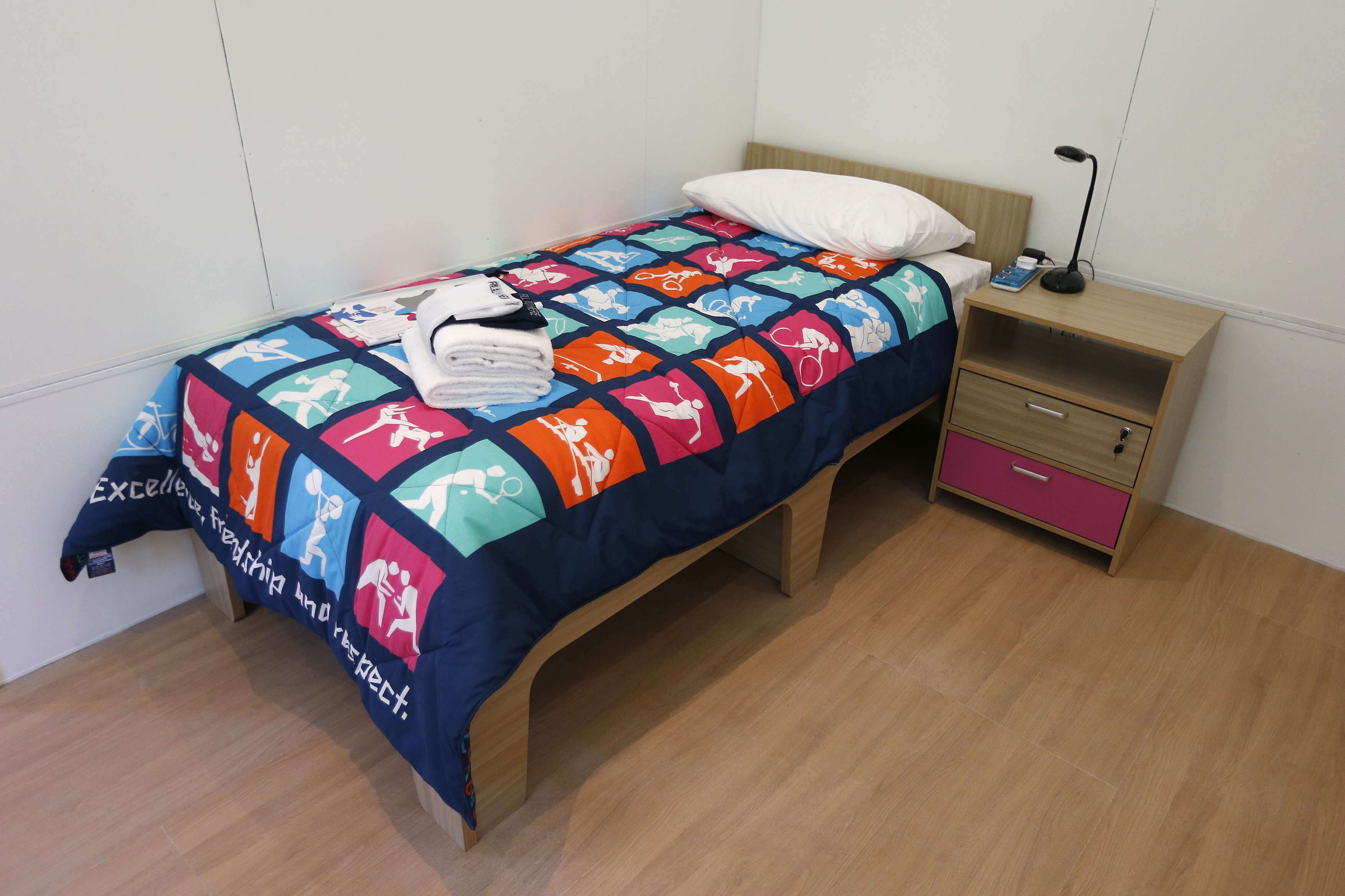
If you're unfamiliar, athletes have been outspoken about the sparseness of their rooms and particularly the flimsiness of their beds and mattresses—Smith called the beds "hard as rock." But in 2024, "There's a space here in the Paris 2024 Village where they give you education on the mattresses—so based on your sleep type, they can show you how to flip the mattress," he explained. "Each side has a different comfort level based on your preference of firmness." Team USA covers the cost of mattress covers, too.
Quiet Hours
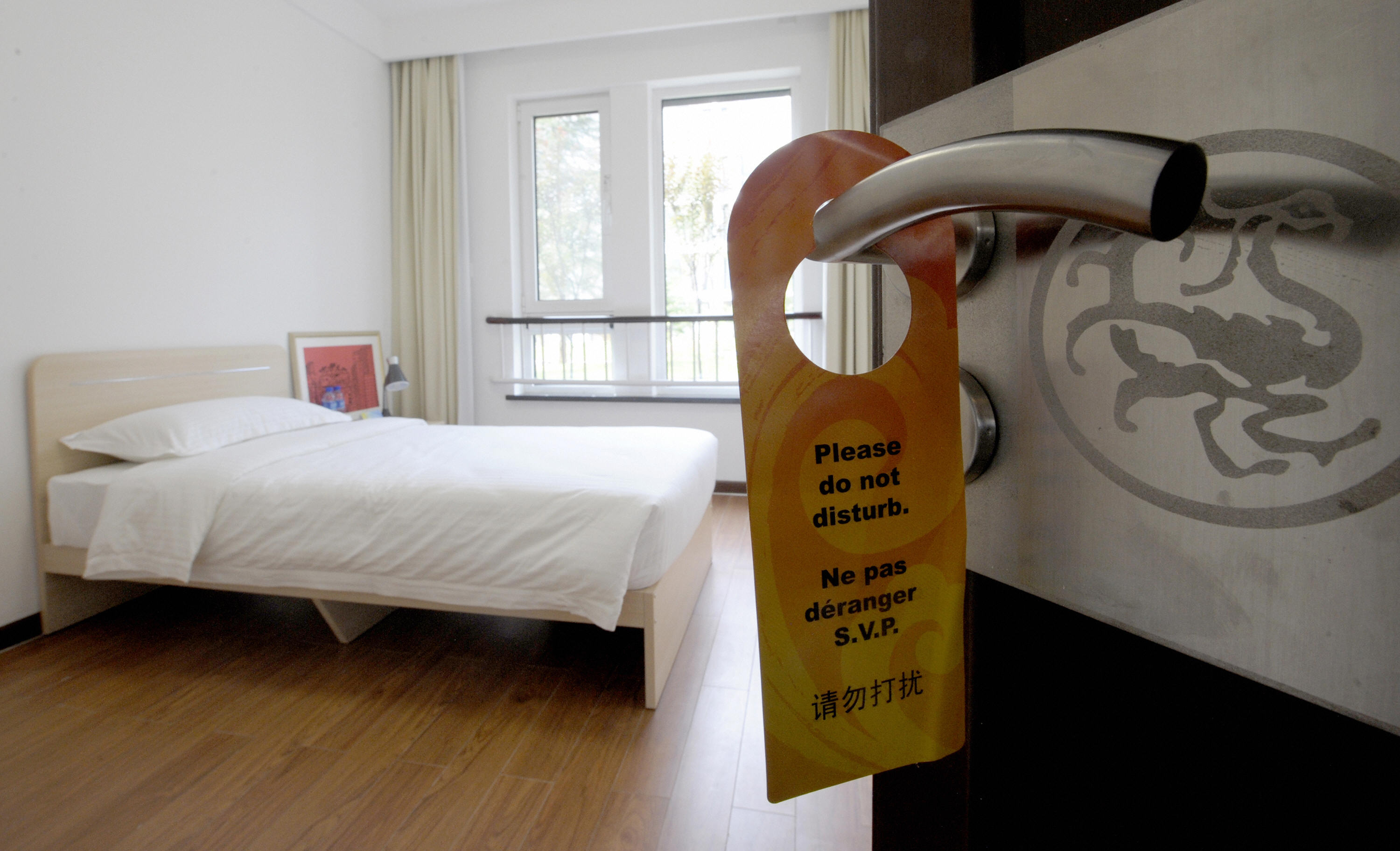
It's important for the athletes to get their sleep during the Games, so quiet hours were in place from 10 p.m. to 7 a.m. for Team USA. "[Athletes] can do as they please. It doesn't mean they have to be in their rooms by 10:00 p.m.," Smith added. "We just can't have music blaring out of an apartment at 10-11 p.m. just to make sure people are getting their rest and recovery and they're ready to train or compete the following day."
Leave 48 Hours After Your Last Competition

Once you have your last event of the Games, you have 48 hours to leave the Village. After that time period has elapsed, your Olympic Identity and Accreditation Card are deactivated and you lose access to the building. That might sound intense—but it's a lot of athletes, and space is a premium.
Minors Room With Minors
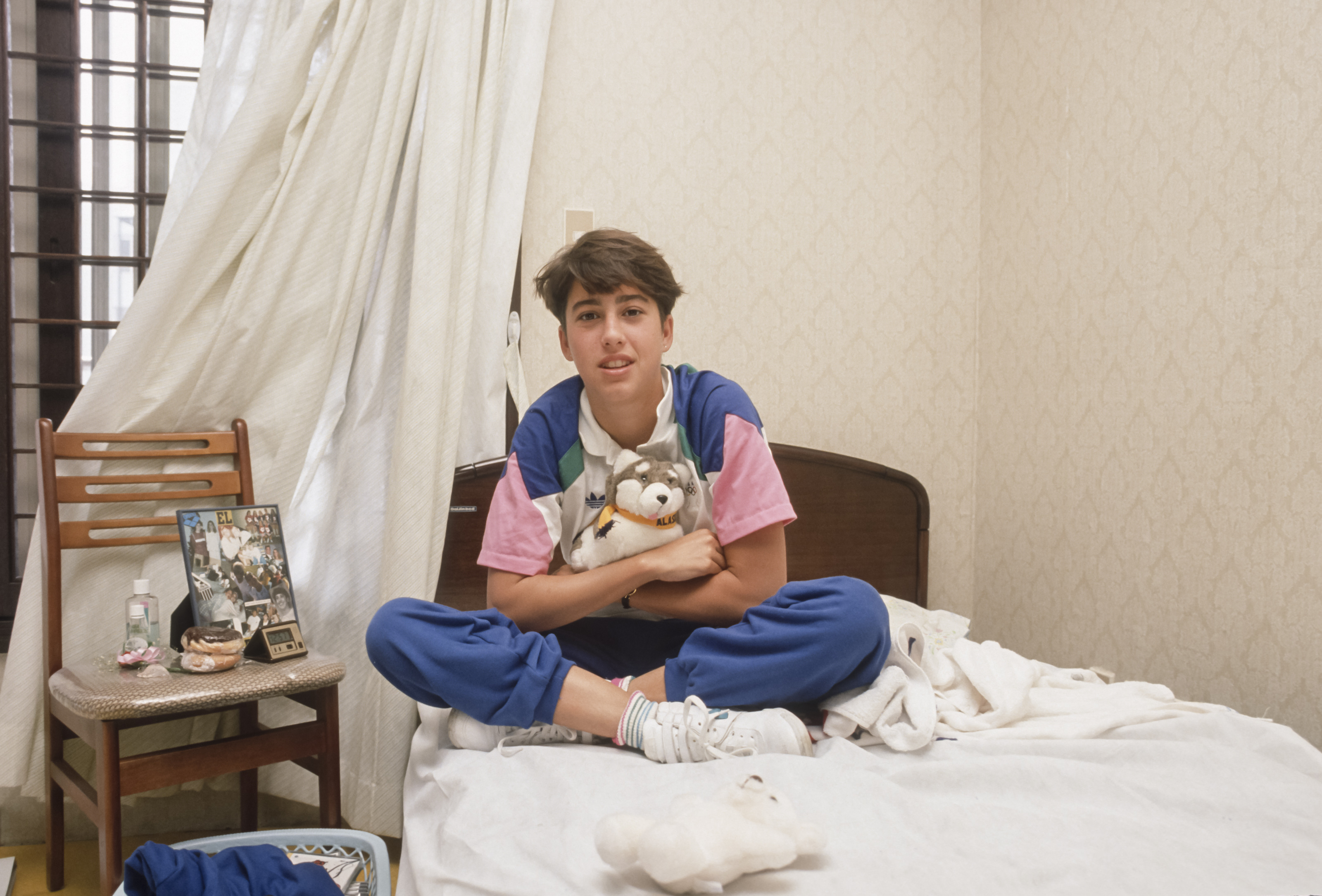
Athletes who are not yet of legal age (pictured: Janet Evans, who would have been 17 at the time this was taken) have chaperone accreditation (meaning a parent can accompany them). But, because there are limited accreditations allotted for each team, an available bed is more likely to go to a coach. For minors, there are extremely inflexible guidelines for roommates. The USOPC "really [tries] to keep minors in rooms with minors," said Smith. "So we don't mix folks that are under 18 with folks that are over 18, except for very specific circumstances."
Outside Accommodations Are Up to You
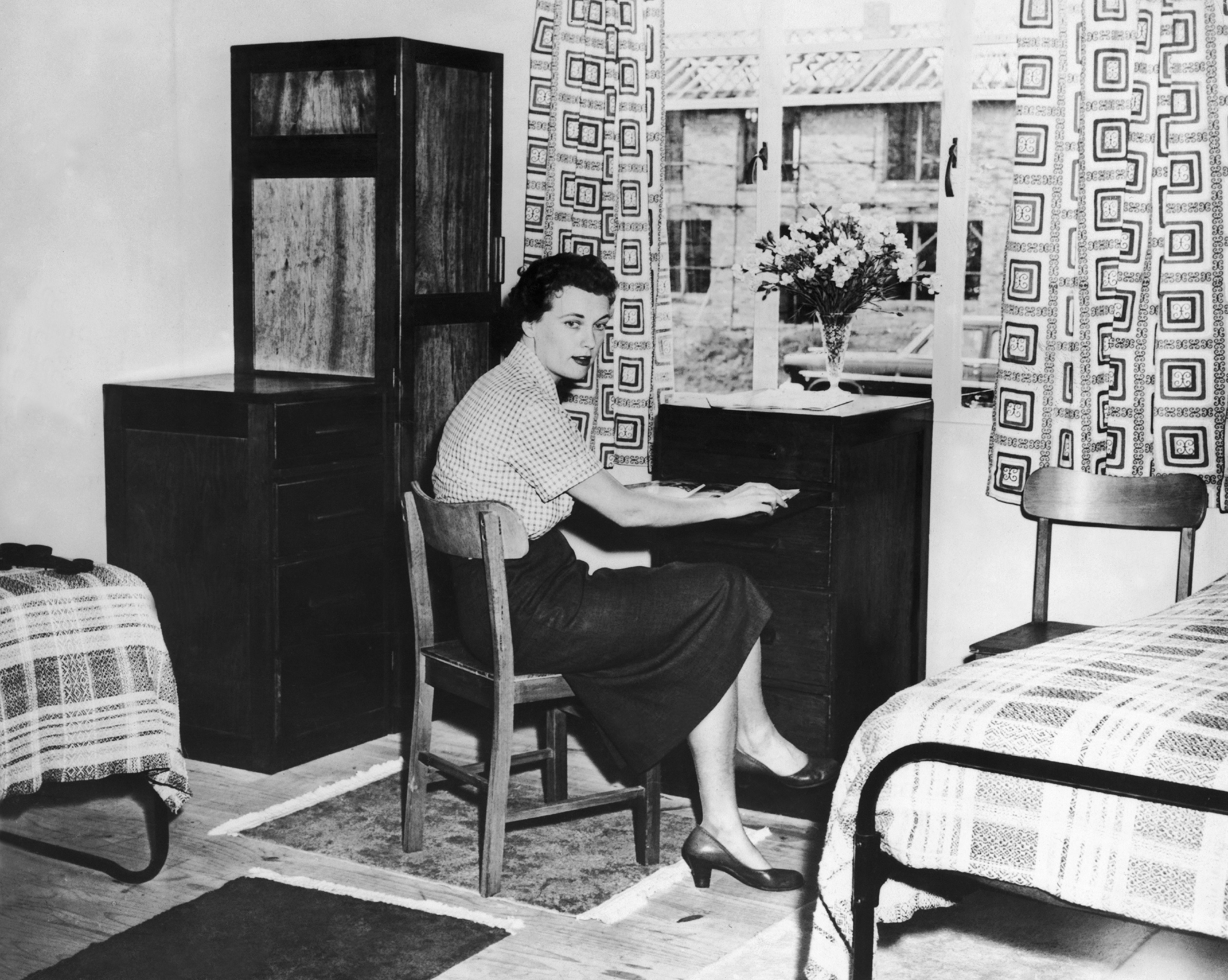
If you don't want to stay in the Olympic Village, no worries! But finding outside accommodations, food, exercise equipment, and anything else you need during your stay will be up to you. This might be relevant for a famous athlete, for example, who might get a lot of attention while in the Village.
Only Approved Modes of Transportation
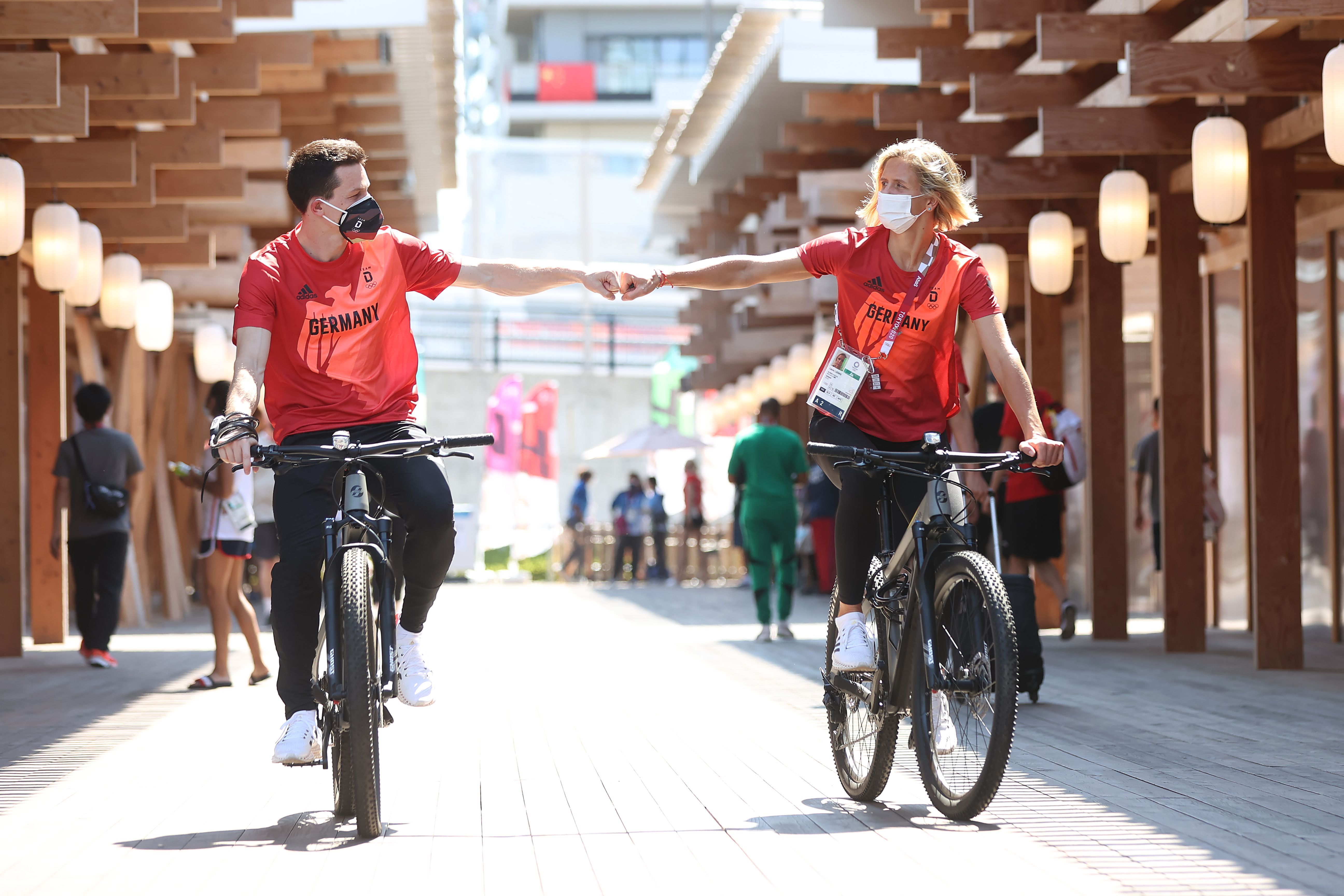
The Olympic Village has a bunch of approved ways for athletes to get around. "They have 600 communal bikes within the Village that you can just grab and go," Smith said. "They have electric shuttles all throughout...There are electric vans that can transport people or luggage equipment." Since the area is small, "you can pretty much get from one end of the Village to the other in a couple of minutes."
Tons of Food
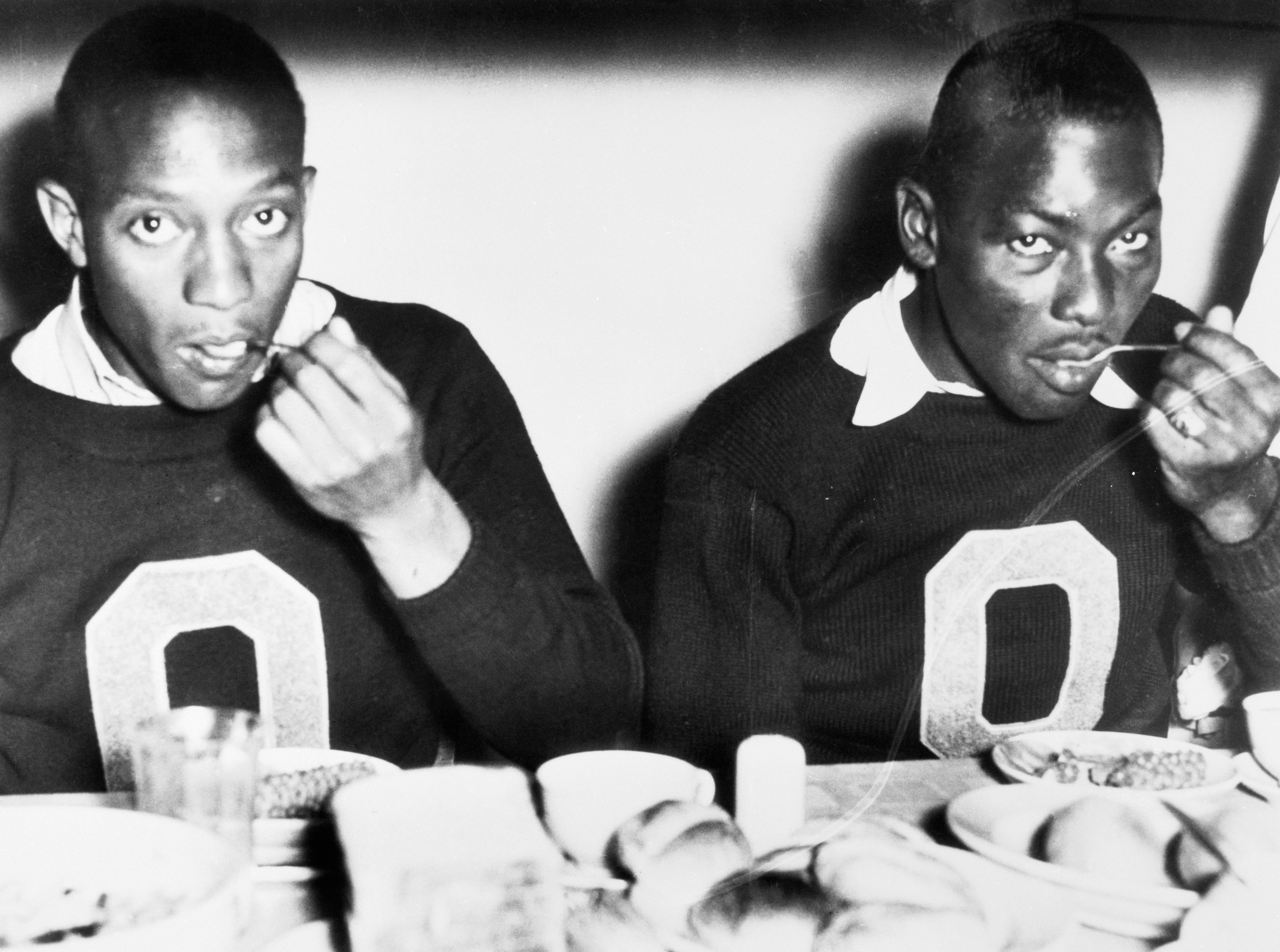
The Village has long been a place to refuel (this picture, featuring Jesse Owens and Dave Albritton, is from 1936). Paris had six food stations (called "restaurants") in their dining complex, which (per People) is 46,000 square feet with the capacity to make 60,000 meals a day during the Games. According to Smith, "Everything from world food, Asian food, Latin American food, halal, vegetarian section...There's also a quick grab and go." A French bakery included coffee bars "with every type of coffee drink you could think of" and a station that "teaches [athletes] how to make baguettes!"
You Can Get Your Own Eats

If athletes want food outside the Village, they're welcome to grab it. That would include any cravings for French fries or avocado toast since both foods won't be found on the grounds. One of the head chefs, Charles Guilloy, explained: "French fries are too risky because of fire-hazard concerns over deep-fat fryers...No to foie gras because animal well-being is on everyone’s mind, and no to avocados because they are imported from a great distance and consume a lot of water.”
Dietary Products Okay

According to Smith, if athletes need particular meals or food supplies while they're at the Games, they can be mailed in. "A number of sports ship in food products" to their residential area of the Village. "There are certain products that sports will decide to ship in terms of dietary products."
Tons of Resources
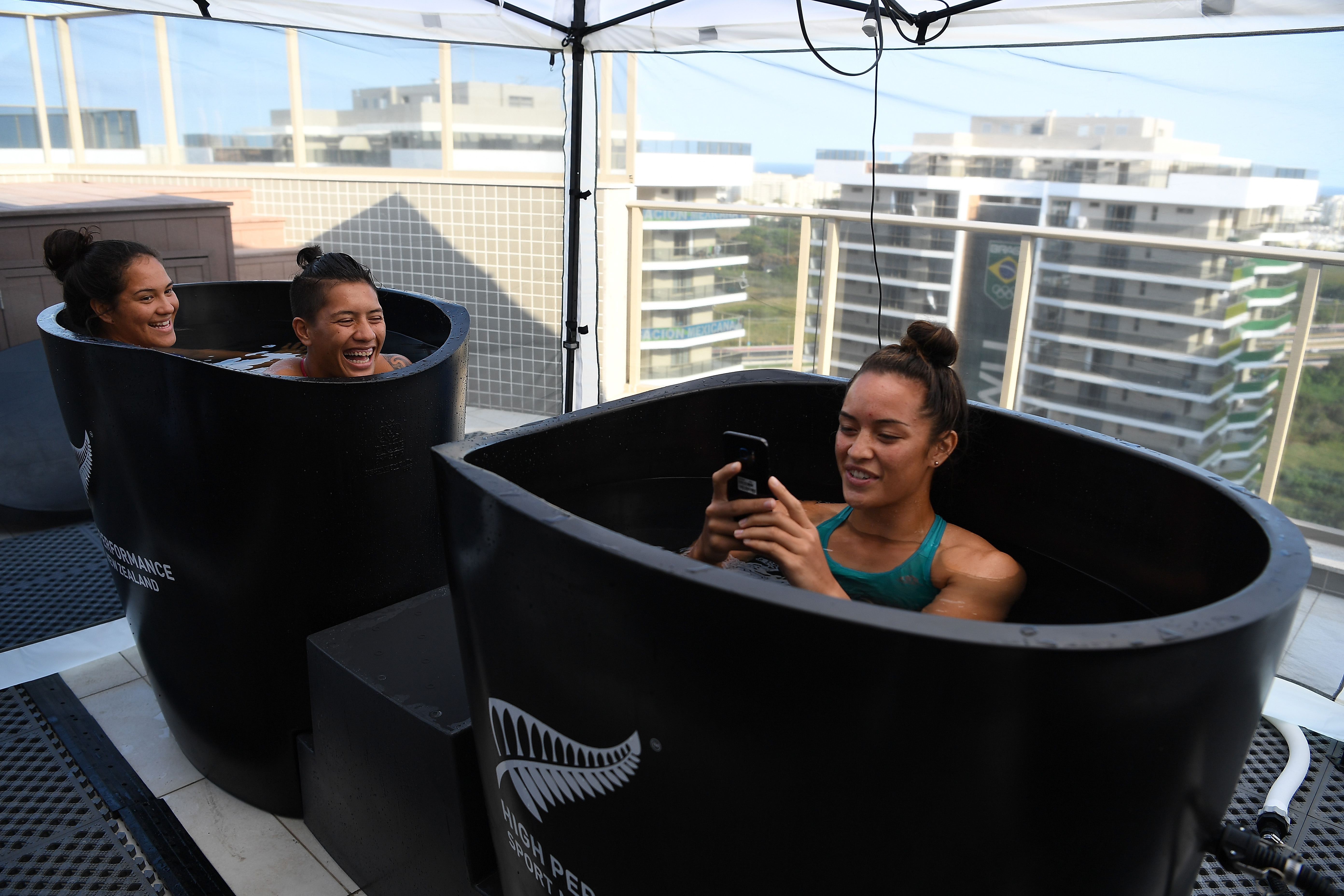
The Village is designed to cater to athletes going through some of the most intense physical experiences of their lives. For Team USA, "We have a full sports med clinic with 22 providers, massage therapy, cold tubs, the works...We have mental health providers in-house. We have sport dietitians in-house who are making smoothies and providing all types of dietary, nutritional supplements to athletes," Smith said.
Change the Decor
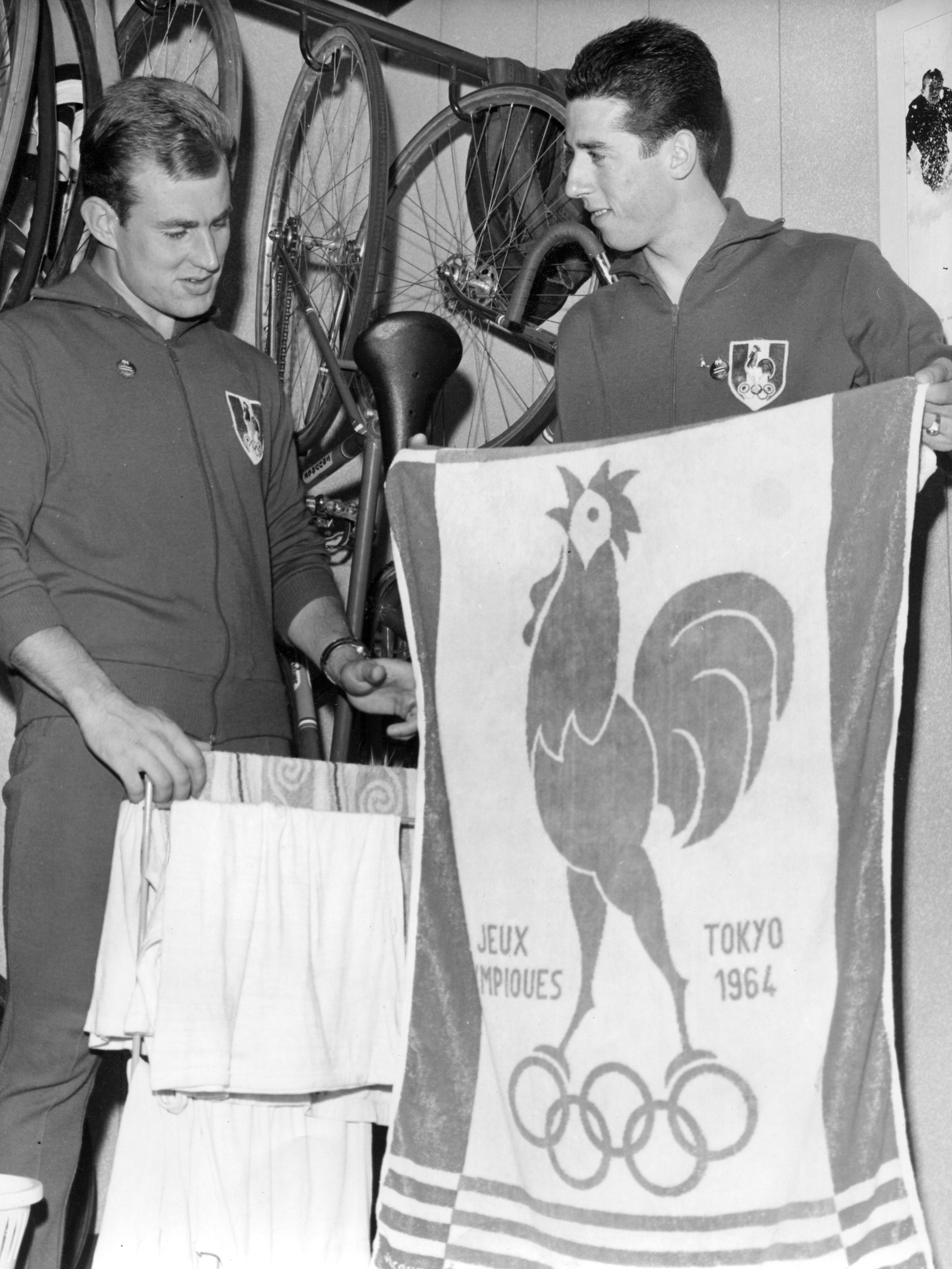
While the teams are in their respective spaces, they can absolutely spruce up the place with banners and other decorations. "People decorate their buildings. It's a competition!" Smith said. "Who decks out their buildings the best, who provides the most flair in terms of their space, all the way to the field of play competition." Nothing political, religious, or racial is allowed, though.
Lots of Medical Care
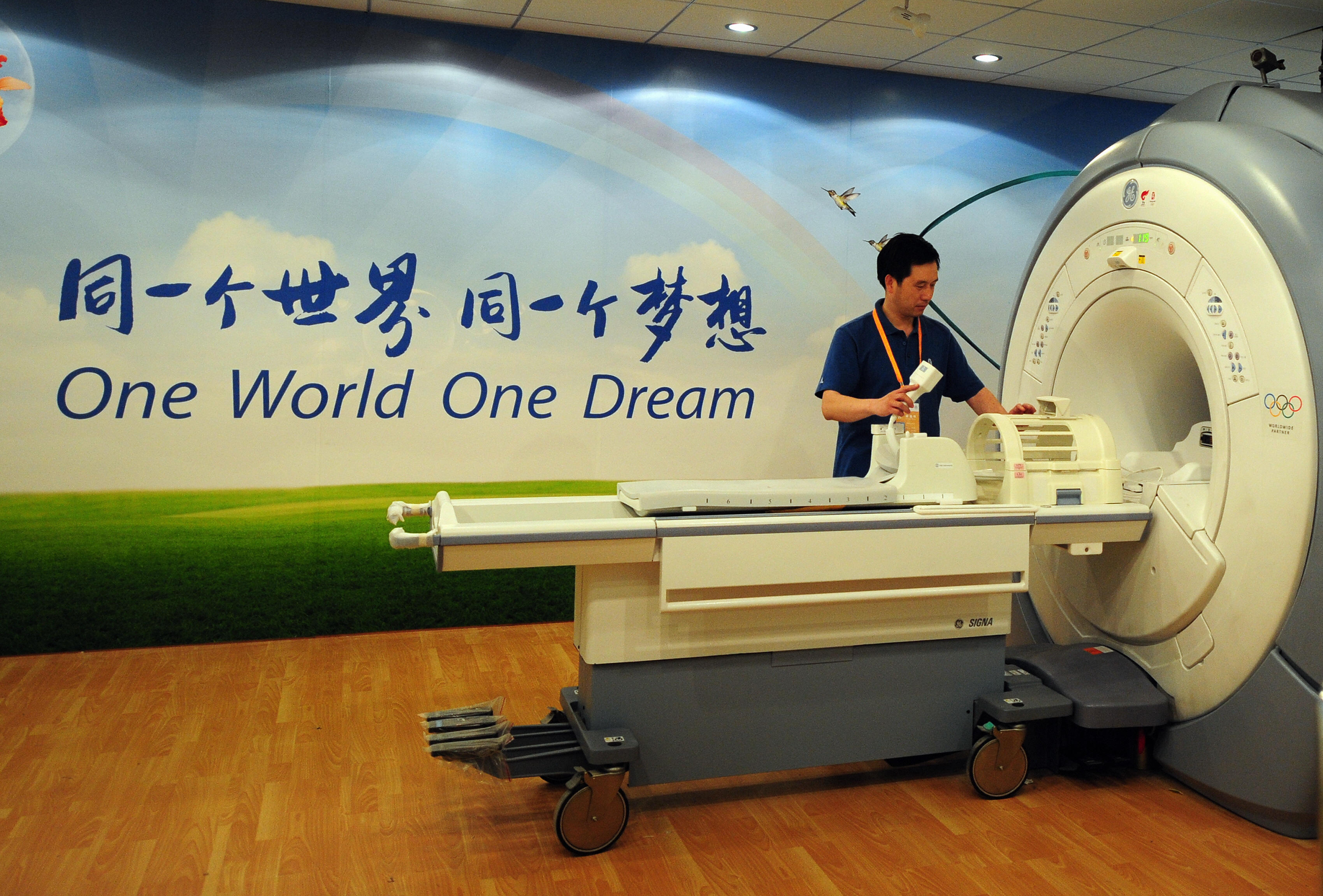
Alongside the various training and food resources comes the very necessary medical resources athletes may (and hopefully won't) need during the Games. Per Steven Isono, a Team USA head physician, "Team USA has two major medical clinics: one in the Olympic Village and one in the High Performance Center (HPC), a dedicated training facility just for Team USA...In the Olympic Village, the host country also has a facility called the PolyClinic, which is a mini-hospital with additional medical specialties including pulmonary, cardiac, ENT, dermatology, etc., and also has X-ray, CT, and MRI scanners."
Fun Stuff
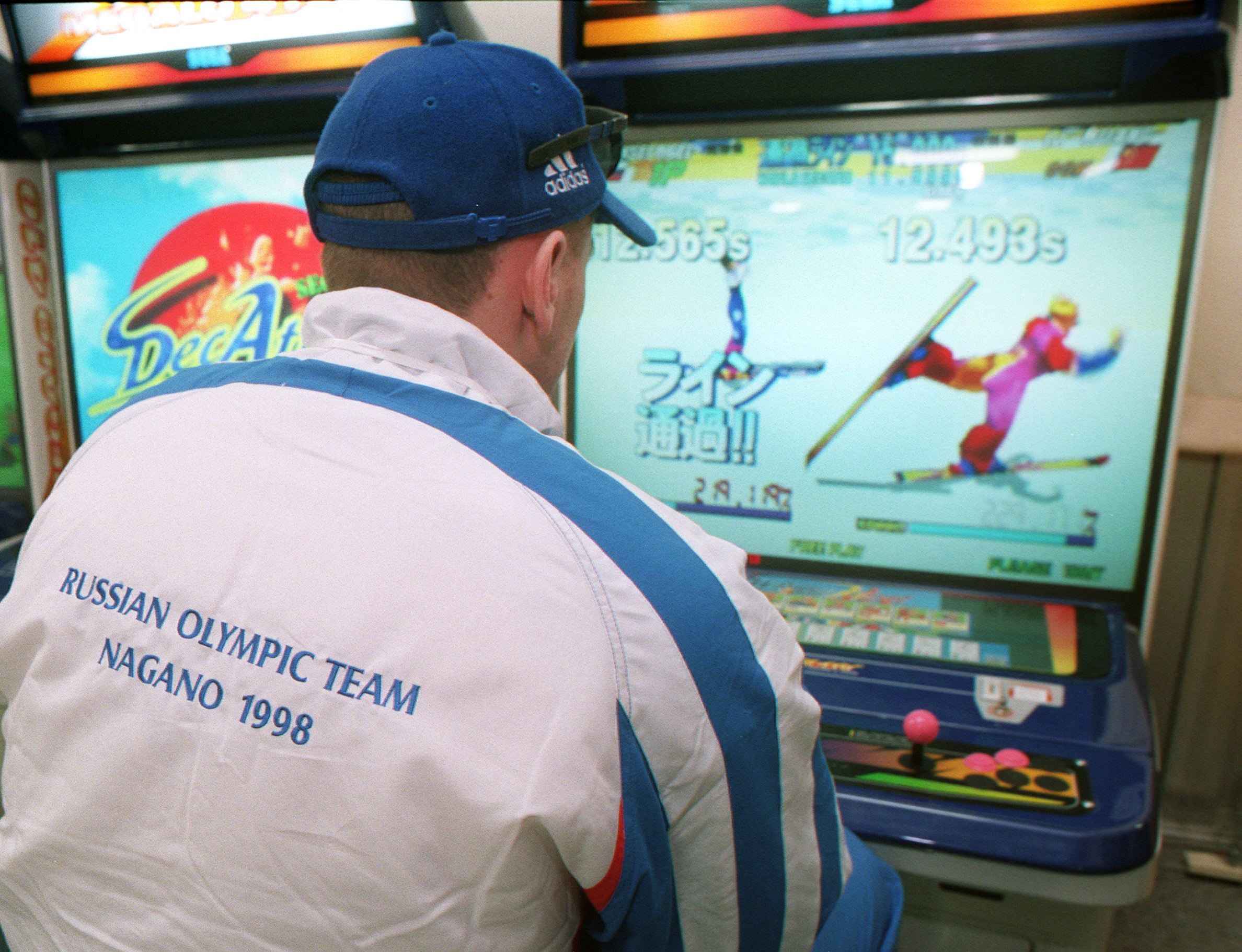
For athletes that want to access beauty services before an event, there's a salon in the Village in the main plaza, as well as a dedicated one for Team USA. There's also stores and a gift shop (in case athletes feel like grabbing some merch). There are no TVs or video game consoles in athletes' rooms. "They have an athlete center with video games and big screens and the works," Smith said. "It's quite extensive. It's a really dynamic space. The athletes love it!"
No Friends or Family
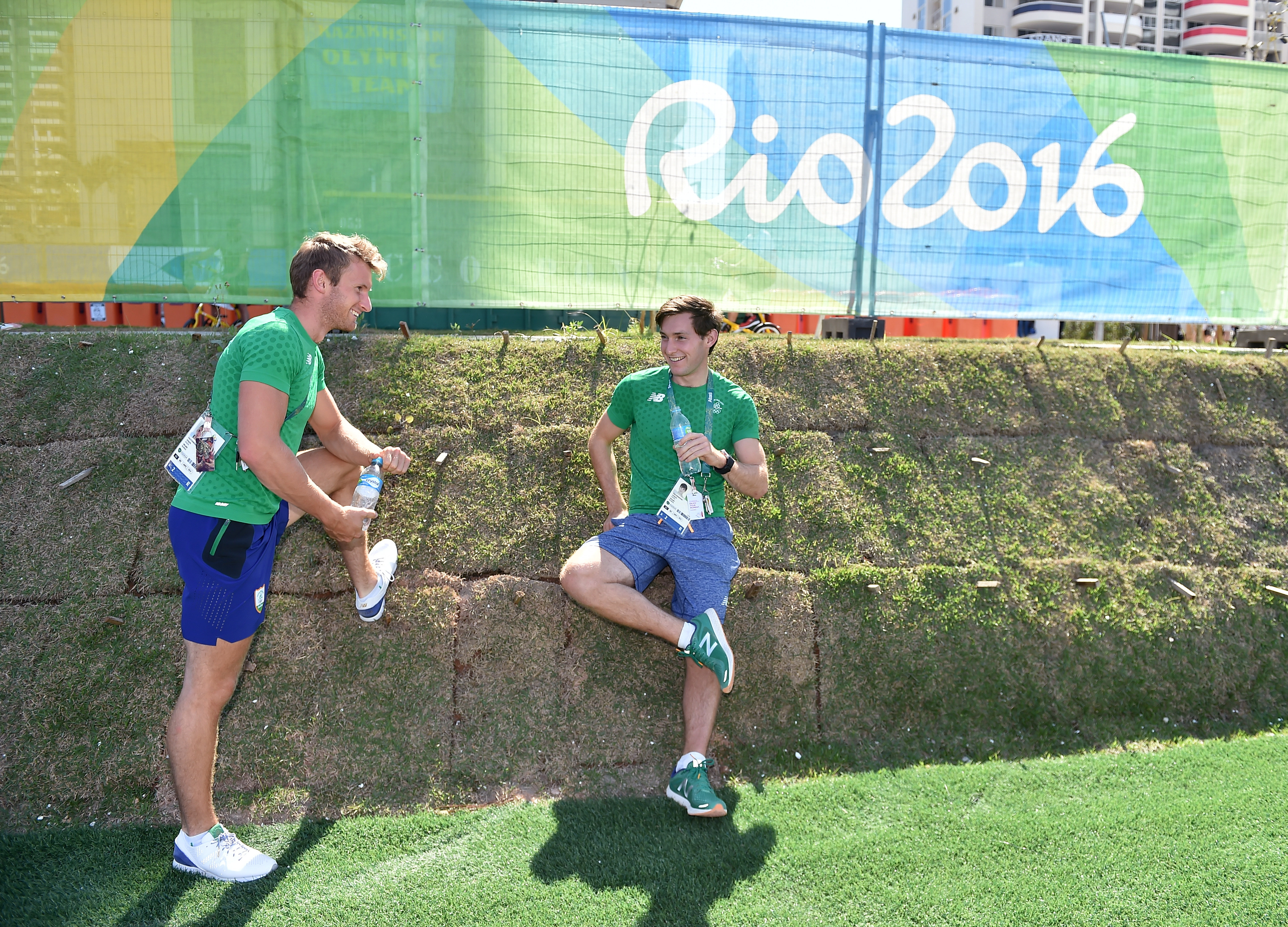
This one's probably a no-brainer, given the limited capacity of the Village, but you only get access if you're an athlete or directly affiliated with the team. "Our primary goal is to create a healthy and safe environment focused on high performance," Smith explained. "Our primary function is to make it as distraction-free as possible."
Exception for Nursing Parents
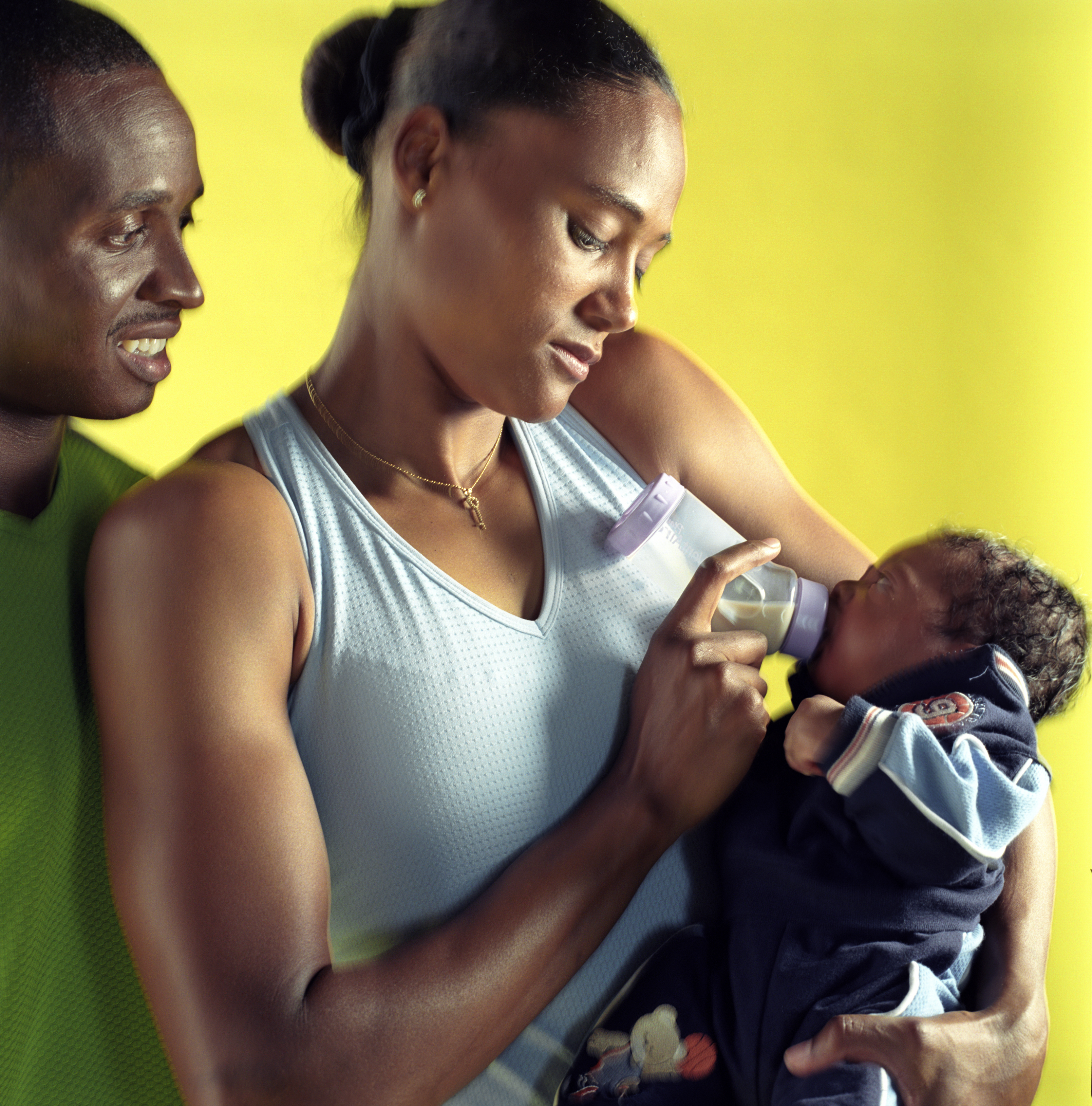
If you're a nursing parent, you can bring your baby into the Village Nursery—for the first time in Olympic history, a dedicated space run by P&G was provided for Paris 2024 athletes and their little ones. Pampers is providing diapers and wipes and the space is designed for "playtime and family bonding," per the site.
Team Size Determines "Accreditations"
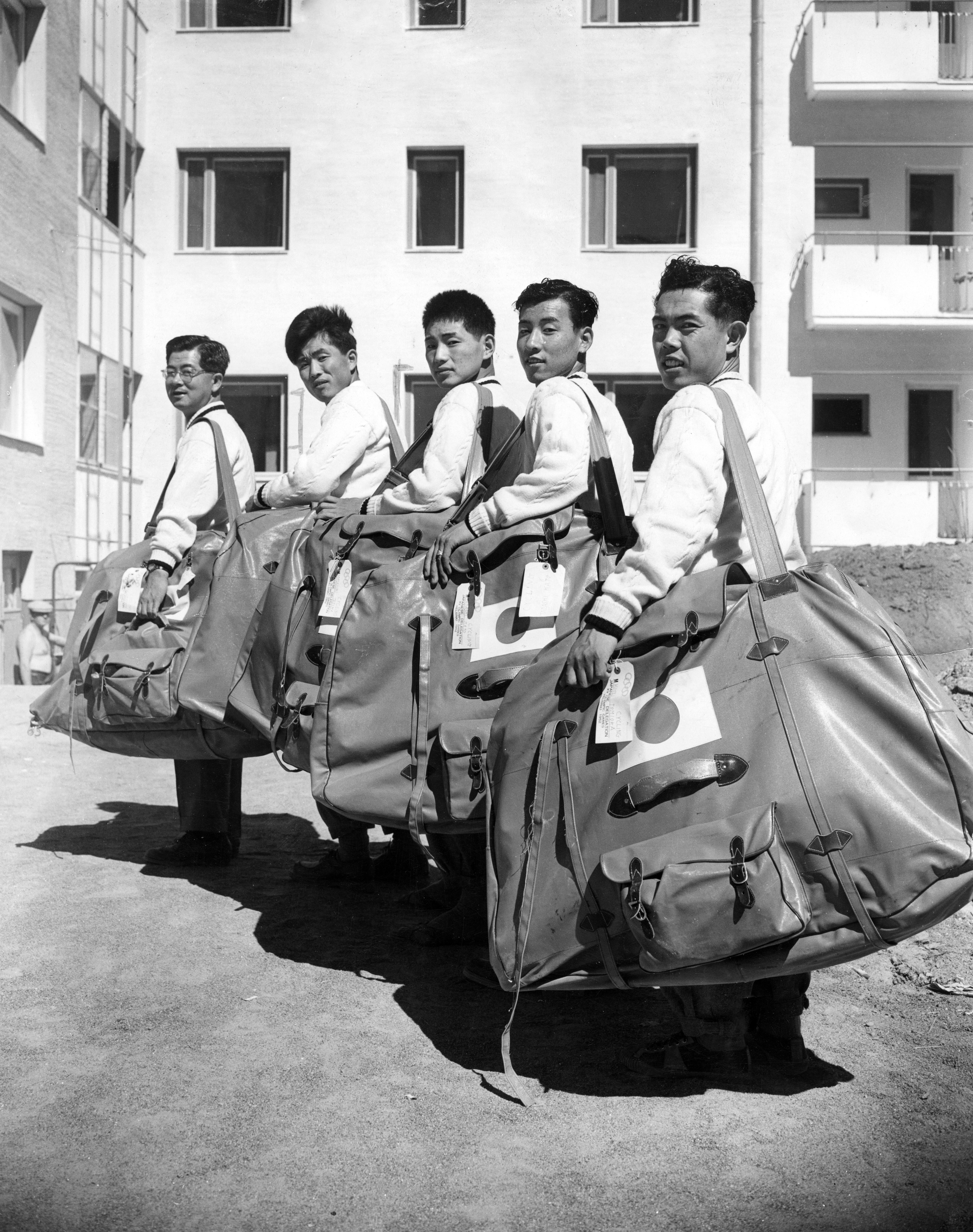
The exact number of people you can bring to the Olympics depends on "accreditations," which is based on team size. Usually, that means "team leaders, staff, medical personnel, and sometimes security," said Smith. "They want all their coaches in, but we don't have the space for them."
Everyone Gets an ID
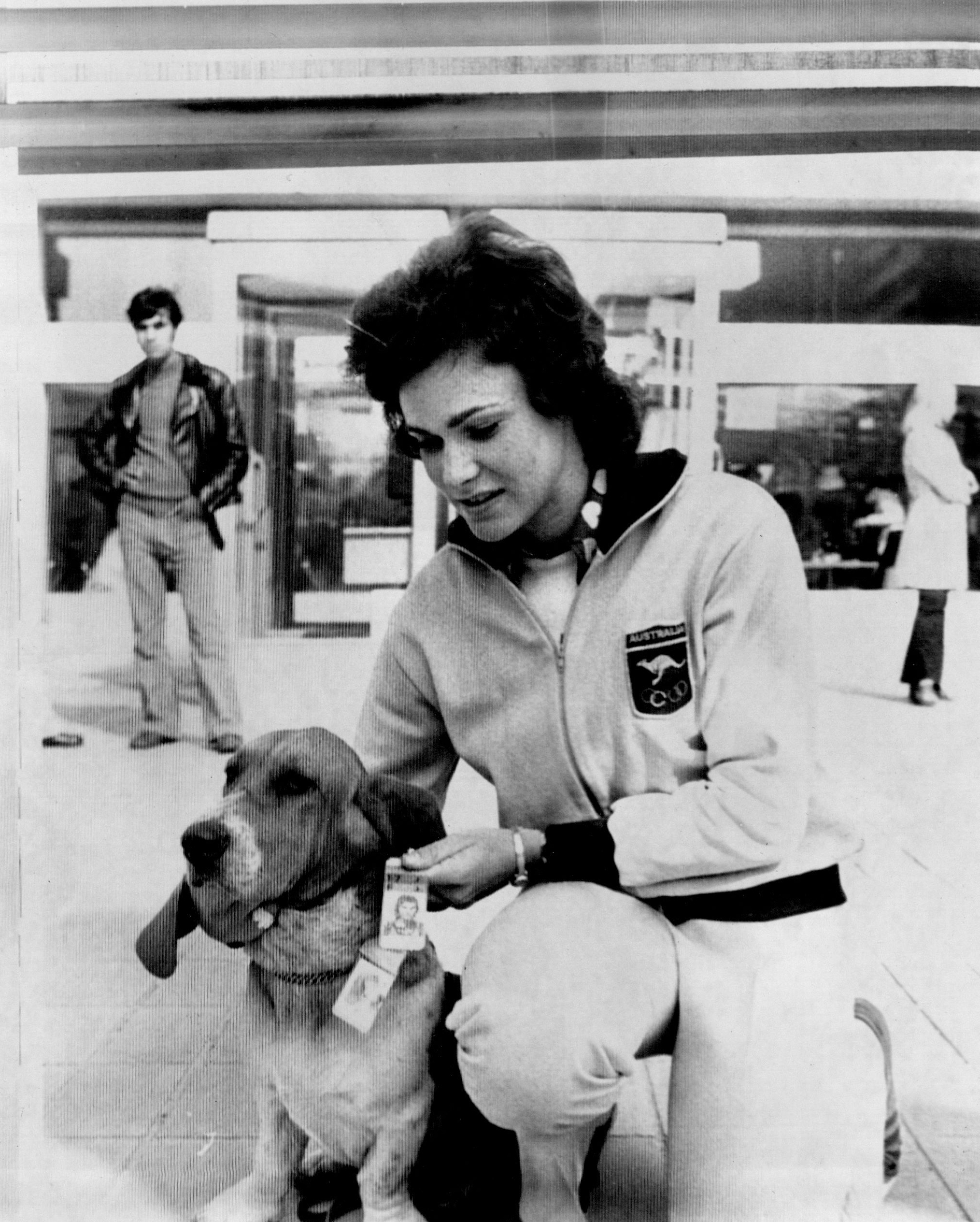
The Olympic Identity and Accreditation Card is an athlete's access to the Village and its various resources. Everyone gets one—including pets! In this 1972 photo, the Village mascot Titine the basset hound has his very own ID card. Security: strict for everyone!
Only Fake Animals
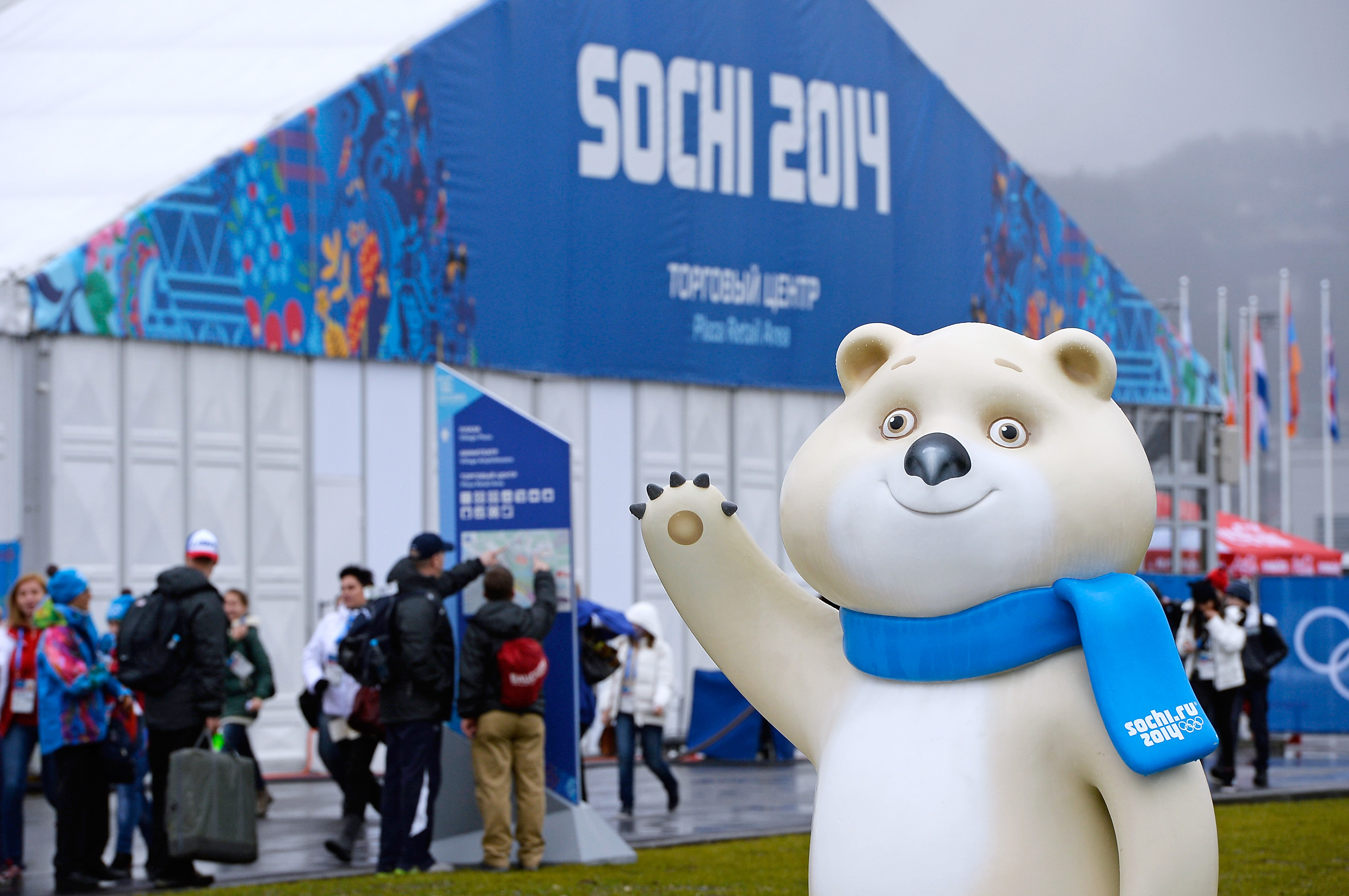
While this likely varies according to the Games, Paris 2024 had a strict no pets policy. "We tried," Smith told People. "Unfortunately that was not possible—and it wasn't because of the Paris 2024 regulations, it was more of French governmental regulations around certification of therapy dogs."
Bring Security...Sometimes
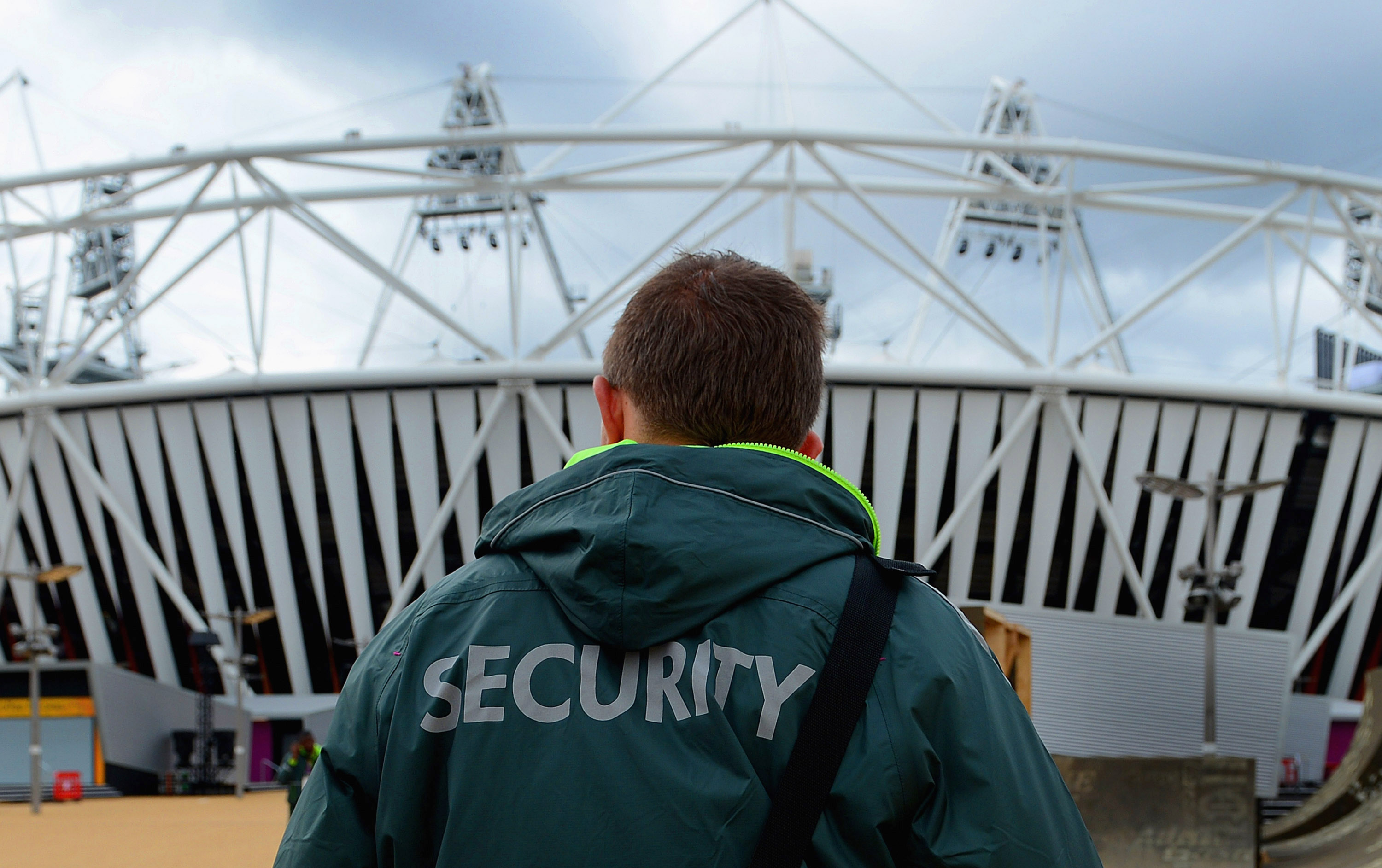
Some famous athletes have their own security detail to accompany them. Sometimes accreditations are given to them if there are any available, but they can't live with the athletes and are only allowed in for certain places (like the dining hall) and during certain times (like the Olympic Opening Night Ceremony).
Team Members Stick Together
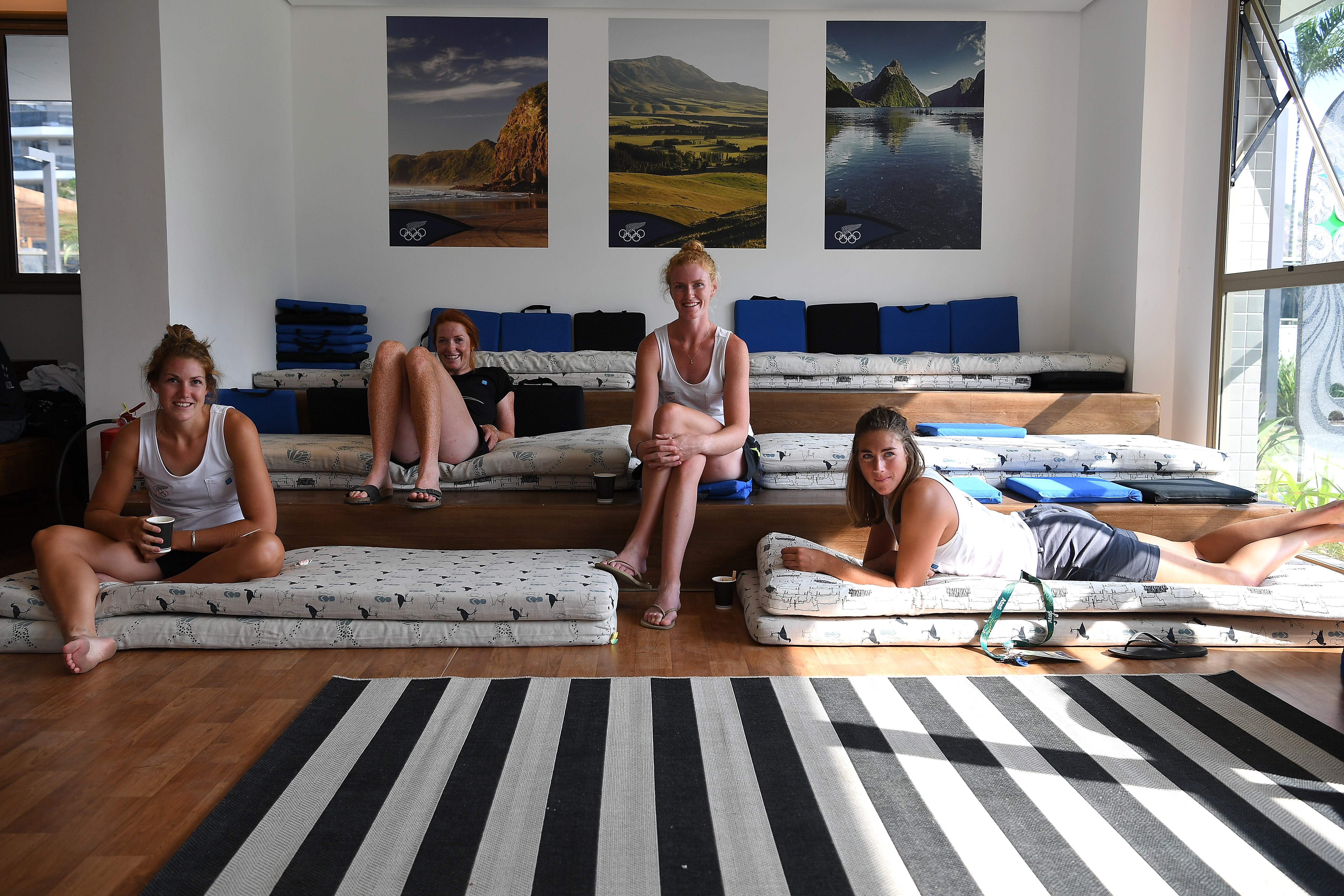
Residential areas have lounge spaces; per Smith, every effort is made to keep athletes from other countries out of a team's residential area for security reasons. But Smith explained, "[Different team] athletes know each other from university. They know each other from competition. And so yeah, there's a lot of mix and mingle in the Village."
Mingling Is Fine
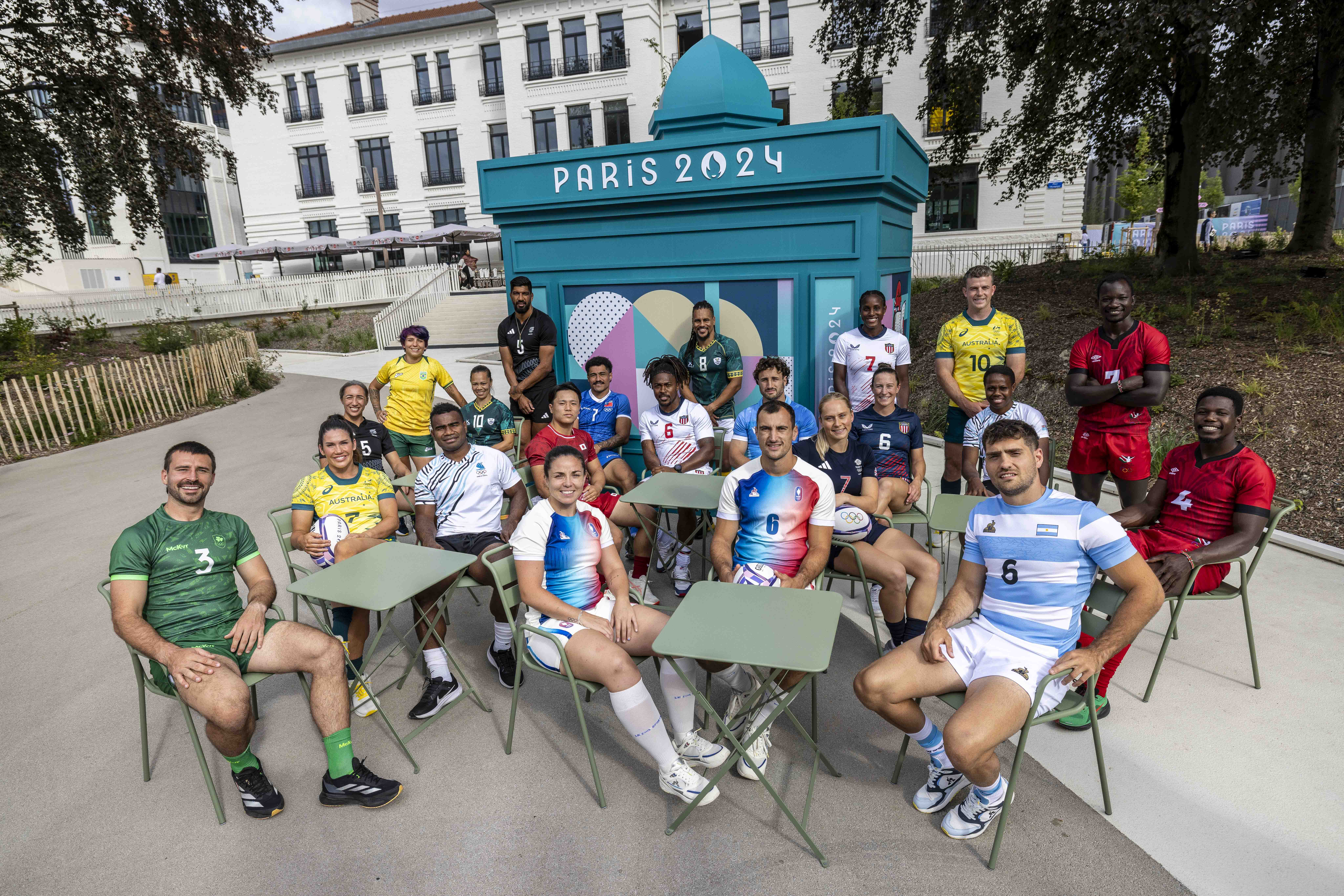
Athletes can congregate together outside residential areas. Smith explained, "We have an athlete resource center, which is an athlete-only space, which is really for them to hang out, decompress, mingle with other athletes. We have big screens on watching competition when competition starts."
The Sports Team Choose the Roommates
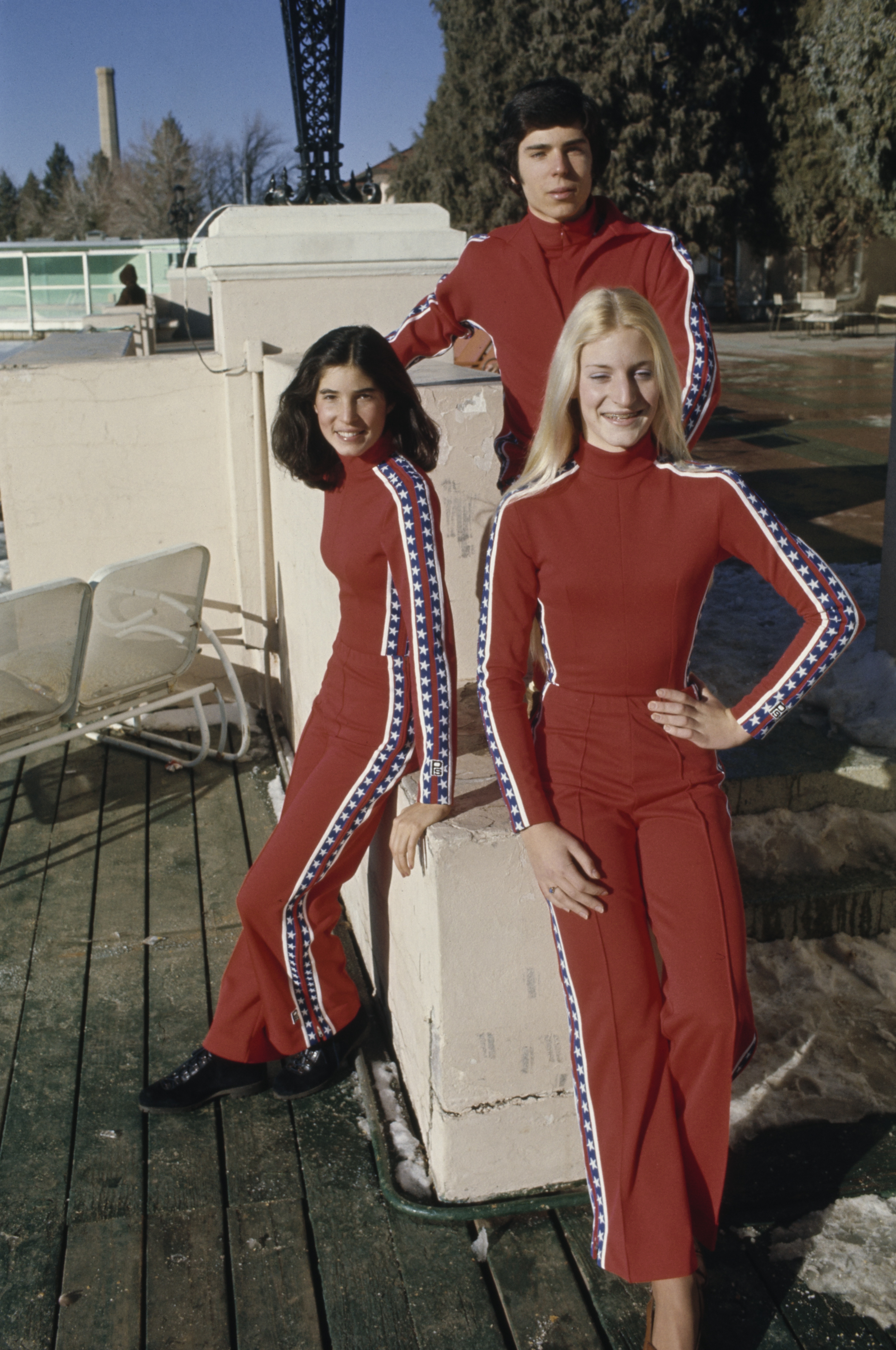
This has everything to do with accreditation, team size, and room size. Smith explains: "They have 16 athletes on a field hockey team. So we'll say, 'Okay, you have four apartments. Each apartment has X number of beds. It's two people to a room'...The [sports] team leader will come back and say, 'Okay, here's our rooming list. These are who we're going to have room with who'...Every sport will make that decision on their own, it's not us as Team USA who decides for the specific sport."
Limits on Social Media
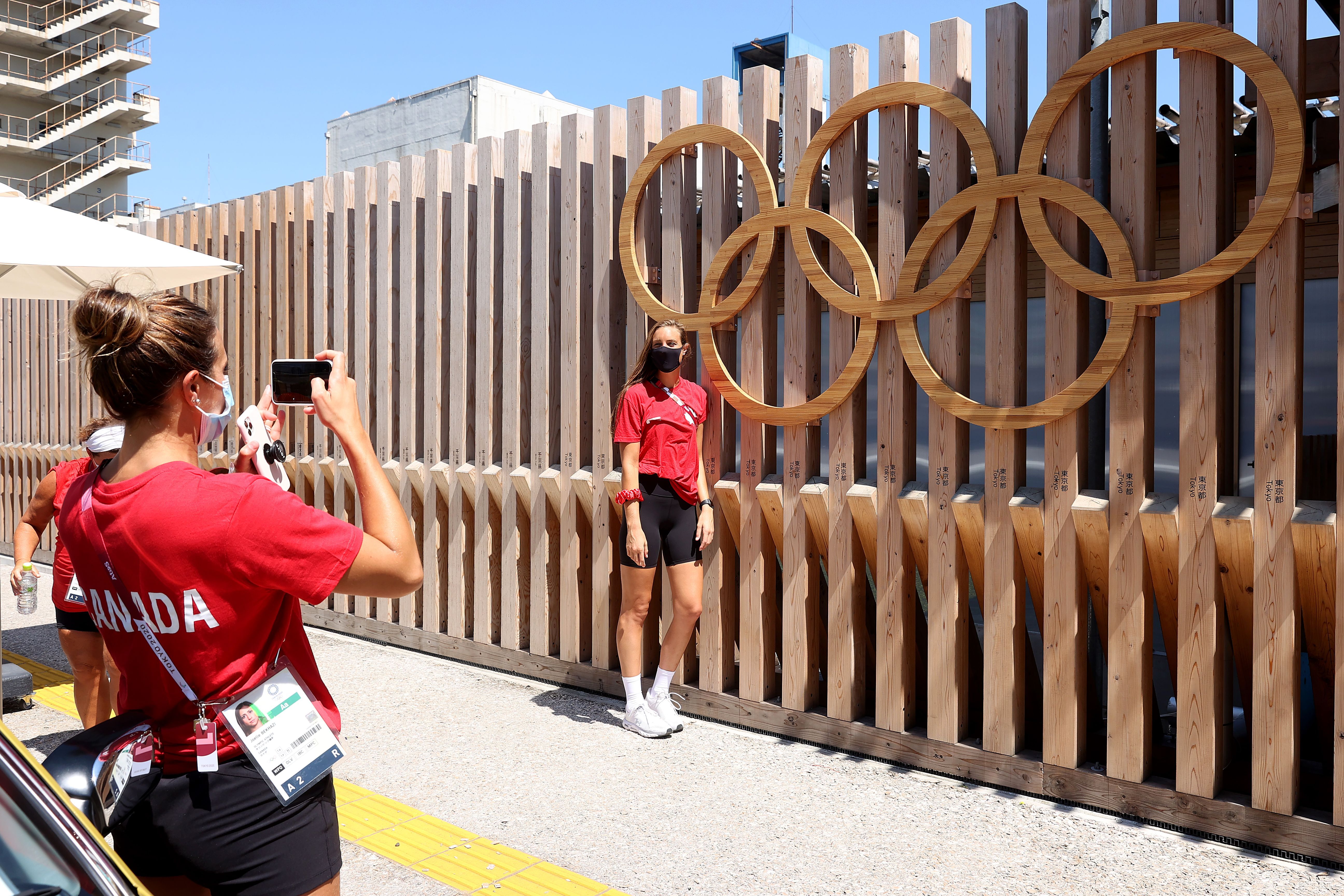
Athletes can post elements of their Olympic experience on their social media...but it's not an all-access thing. They can't take photos or videos of restricted areas like medical facilities or doping control stations, and you have to ask permission before you snap photos or videos of other athletes.
No AC
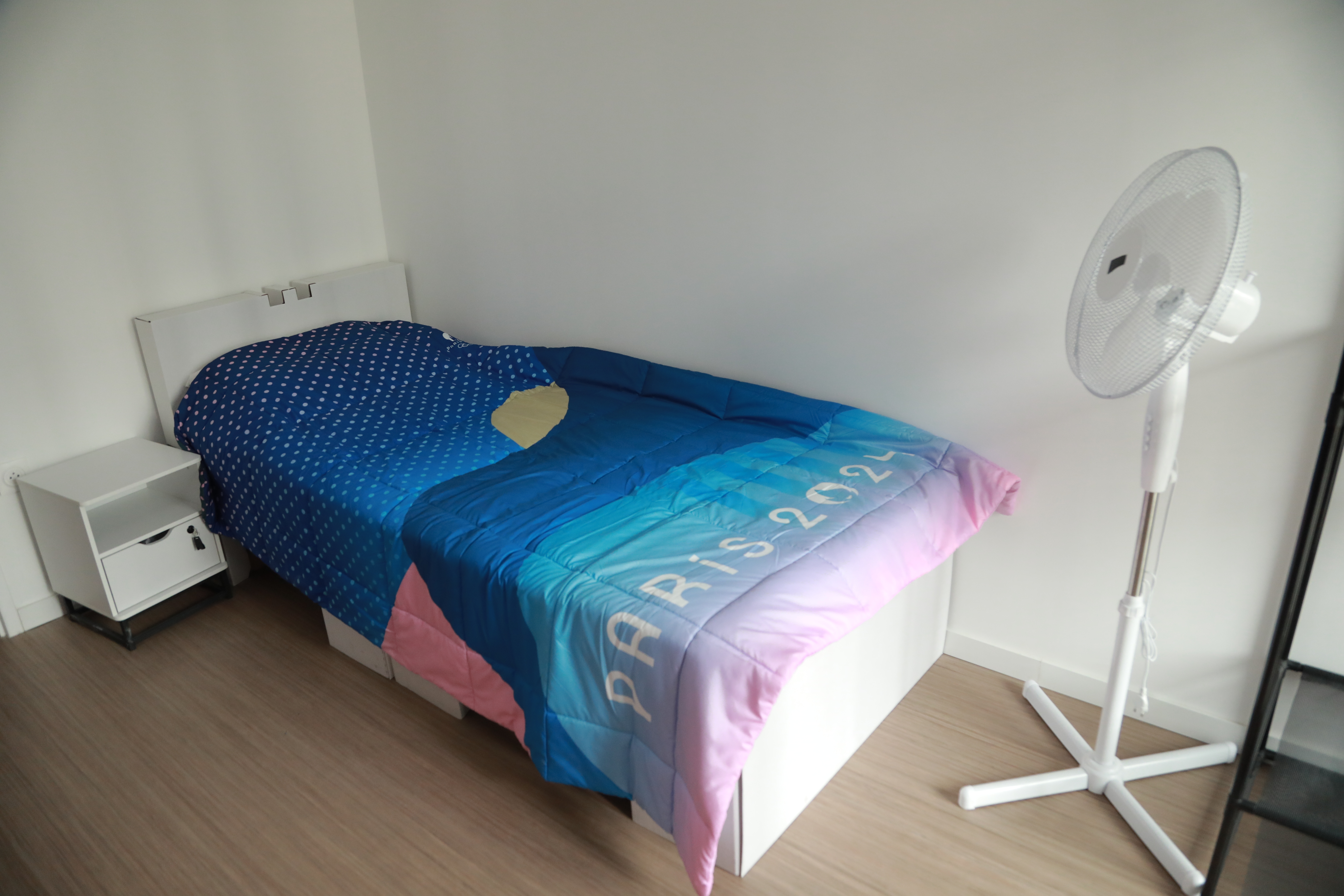
This was a specific detail for the sustainability-focused Paris 2024 Olympics: The rooms were not outfitted with air conditioners. However, after backlash from athletes and coaches, organizers allowed teams to buy portable air-conditioning units that they paid for.
No Alcohol
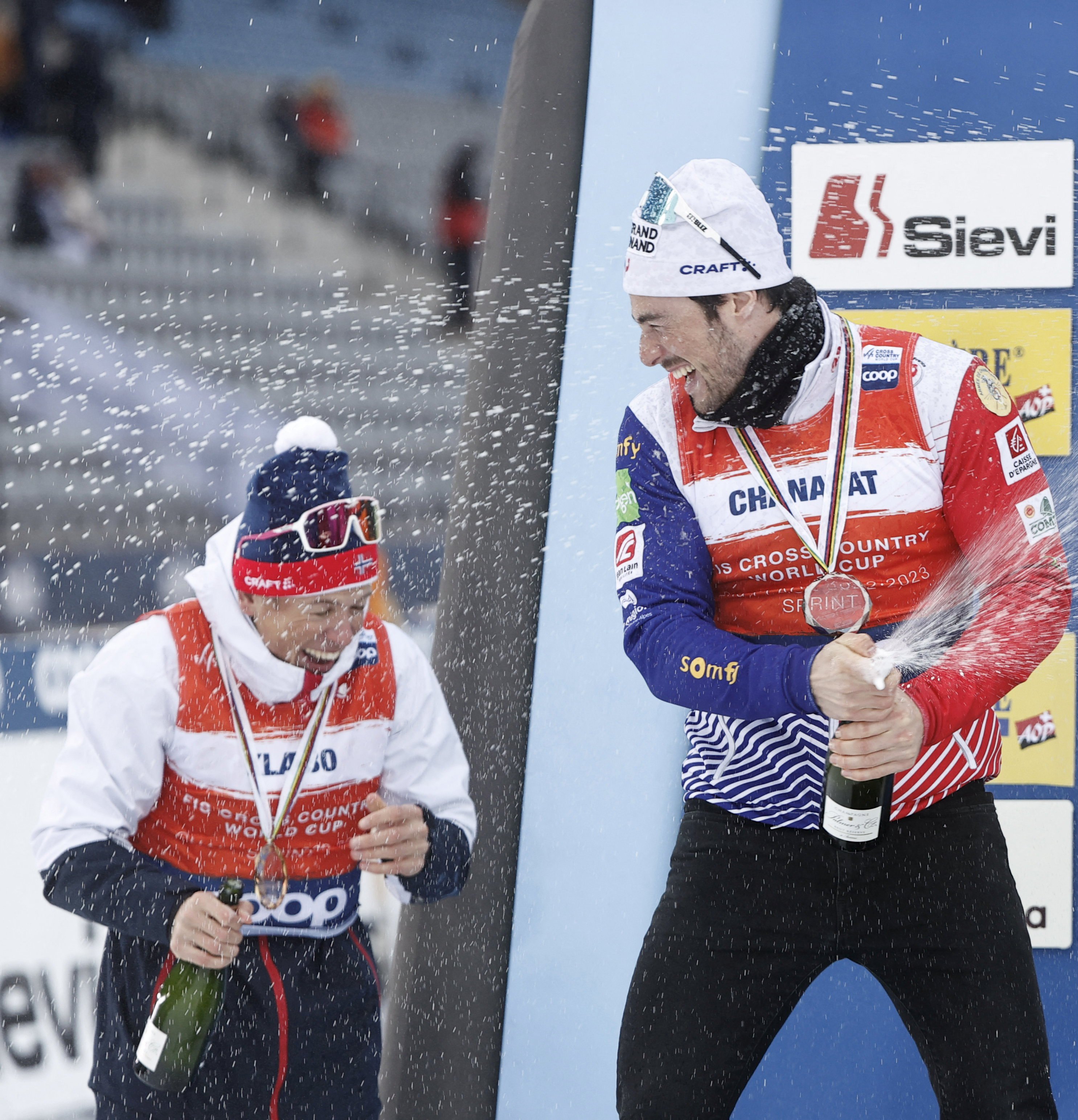
"It is a dry Village for Team USA," Smith said. "There's no alcohol permitted in our buildings, pre-competition, during competition, or once competition has finished." But he added that people wouldn't be going inside rooms to check. "It would have to be very blatant for us to really get involved."
But There Is a Bar
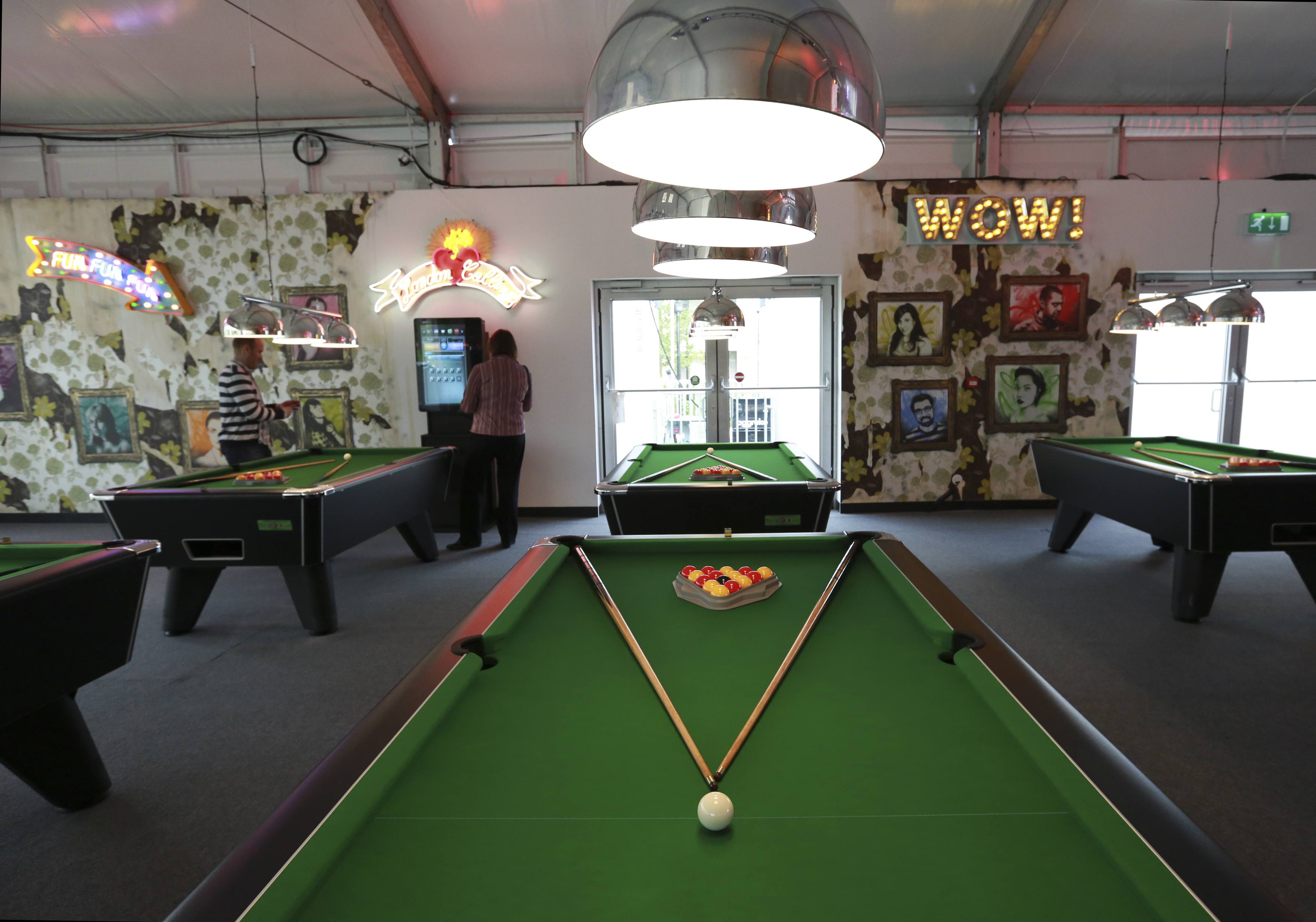
Laurent Michaud, director of the Village, told Sky News that there would be a celebratory space in the Village. "It's going to be a great place so they can share their moment and the environment here...No champagne in the village, of course, but they can have all the champagne they want to in Paris."
The Lifting of THAT Ban
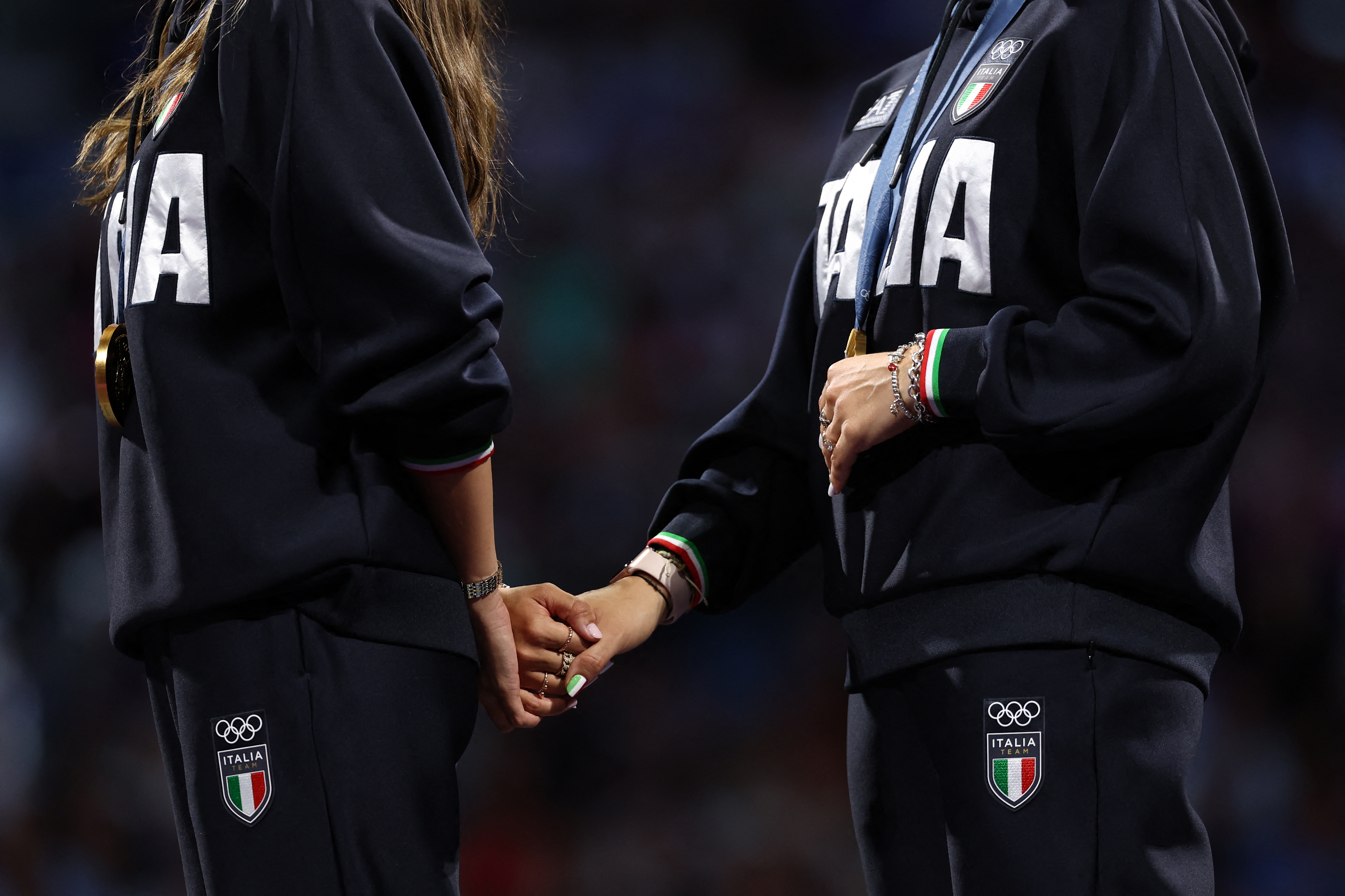
In perhaps the most-discussed rule (or lack thereof), there's no longer an intimacy ban—the Tokyo 2020 Olympics had one because of COVID-19 concerns, but it's been lifted. In fact, 600,000 Olympics-branded condoms have been distributed! But it's worth noting that it still might be tricky to "interact" with athletes from other countries for security reasons (non-team members can't enter Team USA's residential area). C'est la vie!
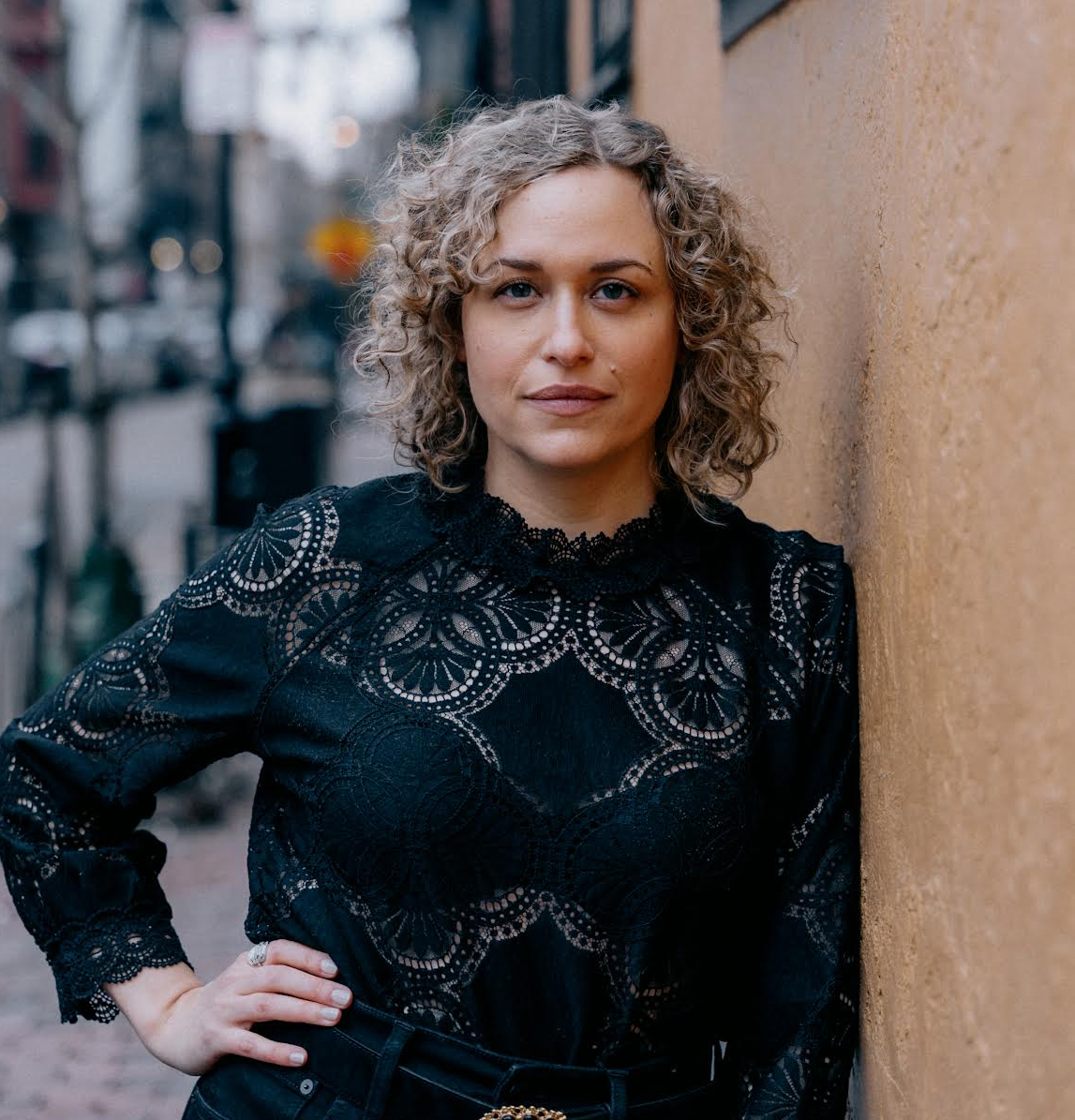
Katherine’s a contributing syndications editor at Marie Claire who covers fashion, culture, and lifestyle. In her role, she writes stories that are syndicated by MSN and other outlets. She’s been a full-time freelancer for over a decade and has had roles with Cosmopolitan (where she covered lifestyle, culture, and fashion SEO content) and Bustle (where she was their movies and culture writer). She has bylines in New York Times, Parents, InStyle, Refinery29, and elsewhere. Her work has also been syndicated by ELLE, Harper’s Bazaar, Seventeen, Good Housekeeping, and Women’s Health, among others. In addition to her stories reaching millions of readers, content she's written and edited has qualified for a Bell Ringer Award and received a Communicator Award.
Katherine has a BA in English and art history from the University of Notre Dame and an MA in art business from the Sotheby's Institute of Art (with a focus on marketing/communications). She covers a wide breadth of topics: she's written about how to find the very best petite jeans, how sustainable travel has found its footing on Instagram, and what it's like to be a professional advice-giver in the modern world. Her personal essays have run the gamut from learning to dress as a queer woman to navigating food allergies as a mom. She also has deep knowledge of SEO/EATT, affiliate revenue, commerce, and social media; she regularly edits the work of other writers. She speaks at writing-related events and podcasts about freelancing and journalism, mentors students and other new writers, and consults on coursework. Currently, Katherine lives in Boston with her husband and two kids, and you can follow her on Instagram. If you're wondering about her last name, it’s “I go to dinner,” not “Her huge ego,” but she responds to both.